DESTINATION


Brief Introduction to Germany and its Reputation in Medical Tourism
Germany is one of the world's leading destinations for medical tourism, and for good reason. Located in the heart of Europe, Germany combines high-quality healthcare services with cutting-edge medical technology, setting international standards for medical care. Patients from around the globe flock to Germany for a wide range of treatments, drawn by its world-class healthcare infrastructure, highly qualified medical professionals, and exceptional patient care.
Historical and Cultural Significance in Medicine
Germany's contributions to medicine are numerous and have a rich history, dating back to the time of iconic figures like Robert Koch and Paul Ehrlich, who laid the foundations for modern microbiology and chemotherapy, respectively. German institutions have long been pioneers in medical research and innovation, which adds to the country's credibility and attracts both top-tier medical professionals and patients alike. Moreover, the "Made in Germany" label carries a certain gravitas in the medical field, synonymous with precision, efficiency, and high quality.
Reputation in Medical Tourism
Medical tourism in Germany has been flourishing, thanks to the country's commitment to maintaining its high standards in healthcare. Germany has been successful in creating an ecosystem that blends traditional healthcare services with complementary therapies and cutting-edge treatments. Patients not only benefit from state-of-the-art medical facilities but also have the opportunity to experience Germany’s rich culture, picturesque landscapes, and high standard of living.
The Importance of Accreditation and Affiliations
One key aspect that sets Germany apart is its strict adherence to international accreditation standards. Numerous healthcare institutions in Germany are accredited by globally-recognized bodies, ensuring that medical tourists receive the best care possible. While the country maintains stringent national healthcare regulations, the presence of international accreditations further boosts the confidence of medical tourists.
Popular Medical Procedures
List of procedures.
Germany excels in a wide range of medical procedures including but not limited to:
- Cardiac Surgery
- Orthopedics
- Oncology Treatments
- Neurosurgery
- Cosmetic and Reconstructive Surgery
Specializations and Pioneering Treatments
Germany is especially known for its expertise in complex surgical procedures and innovative treatments. The country is a leader in the field of cancer research and offers highly specialized treatments like proton therapy and immunotherapy. It's also a hub for robotic surgeries, minimally invasive procedures, and cutting-edge diagnostic methods.
Top Hospitals & Clinics
List of renowned hospitals.
Some of the leading medical institutions include:
- Charité – Universitätsmedizin Berlin
- University Hospital Heidelberg
- University Hospital Munich
Accreditation and Affiliation Details
Most of these institutions hold international accreditations and are affiliated with reputed universities, ensuring that medical tourists are treated with the highest standards of care.
Special Features, Awards, or Recognitions
Many of these hospitals have received international awards for excellence in healthcare and are renowned for their specialized departments, multi-disciplinary teams, and state-of-the-art facilities.
Cost Comparison
Comparative data.
Germany’s healthcare may be higher in cost compared to developing countries, but it is often more affordable than healthcare in the United States. For instance, a heart bypass surgery that could cost up to $130,000 in the U.S. might only cost between $40,000-$70,000 in Germany.
Price Ranges
Price ranges for different procedures can vary widely, but what’s consistent is the high standard of care across all services. For a detailed cost breakdown, it is best to consult directly with healthcare providers.
Quality & Safety
Medical standards and practices.
Germany's healthcare system ranks among the best in the world, known for its stringent quality controls and high standards of patient care. The country follows European Union guidelines for medical practices and adheres to internationally recognized protocols.
Accreditation Systems and Regulatory Bodies
Germany has a robust accreditation system for healthcare institutions. Medical facilities often undergo rigorous inspections and quality checks to ensure they meet and exceed both national and international healthcare standards.
Patient Safety Protocols and Patient Rights
German medical institutions prioritize patient safety and privacy. They have established protocols for hygiene, infection control, and patient confidentiality. Patients also have the right to informed consent and access to their medical records, ensuring transparency and trust in the healthcare process.
Medical Visa Information
Guidelines and requirements.
To enter Germany for medical treatments, non-EU citizens will generally need a medical visa. This requires a letter from the medical facility outlining the planned treatment, proof of financial means to cover medical costs, and comprehensive insurance coverage.
Duration, Documentation, and Application Process
Medical visas are typically valid for up to 90 days and can be extended if the treatment requires more time. The application process usually takes a few weeks, so it is advised to apply well in advance.
Travel-related Advisories or Restrictions
Always check for any travel advisories or restrictions due to current events, which may affect your travel plans.
Cultural Considerations
Local customs and etiquette.
While the culture is generally welcoming, it is advisable to be aware of certain German customs, such as punctuality and directness in communication.
Language and Prevalence of English
Although the primary language is German, English is widely spoken in medical institutions. Many doctors and medical staff are proficient in English, which helps in effective communication.
Dietary Considerations or Restrictions
Germany offers a variety of food options, catering to different dietary needs, including vegetarian and halal options.
Travel & Accommodation
Popular and recommended areas to stay.
Cities like Berlin, Munich, and Heidelberg are popular destinations that offer high-quality medical care along with various accommodation options.
Proximity to Medical Facilities
Most of the top medical facilities are centrally located, making it convenient for patients to travel back and forth from their accommodation.
Transportation and Infrastructure Details
Germany boasts a world-class public transportation system, and many hospitals offer shuttle services for the convenience of medical tourists.
Post-procedure Relaxation and Recuperation Spots
Germany is rich in scenic landscapes and wellness centers, making it an ideal location for post-procedure relaxation.
Legal & Ethical Considerations
Legal rights of patients.
Patients have the right to informed consent, confidentiality, and to seek a second opinion. German law protects these rights stringently.
Medical Malpractice Laws and Patient Recourse
Germany has strict laws against medical malpractice. In the event of any negligence, patients have multiple avenues for legal recourse.
Ethical Considerations
The country follows strict ethical guidelines, particularly concerning sensitive issues like organ transplants and end-of-life care.
Benefits & Risks
The main advantages include high-quality healthcare, state-of-the-art medical facilities, and experienced medical professionals.
Risks or Concerns
The potential risks are minimal but could include the high cost of some treatments and the need for timely visa approvals.
Post-procedure Care
Post-operative care.
German hospitals provide excellent post-operative care with a multidisciplinary approach, often including physical therapy and psychological support.
Rehabilitation Centers
There are specialized rehabilitation centers for various procedures, ensuring patients receive comprehensive care.
Frequently Asked Questions (FAQs)
- How do I apply for a medical visa to Germany?
A medical visa requires a formal invitation from the German hospital, financial proof to cover medical costs, and travel insurance.
- Is English widely spoken in German medical facilities?
Yes, English is commonly spoken in healthcare settings, making communication easier for international patients.
- Can I extend my stay if my treatment requires more time?
Medical visas can generally be extended, but it is crucial to consult with the authorities for specific details.
- What are the average costs of medical procedures?
Costs can vary but are generally more affordable than in the United States while offering top-quality medical care.
Global Provider Members

In Germany the official language is German. It is the predominant spoken language, though there are other recognized languages like Danish, Romany, and Turkish. Additionally, many Germans learn English as a second language during their schooling.
Although located mostly at latitudes north of the United States-Canadian border and thus closer to the Arctic Circle than the equator, Germany’s climate is moderate and generally without sustained periods of cold or heat. Northwestern Germany has a maritime climate caused by warm westerly winds from the North Sea; the climate is characterized by warm summers and mild, cloudy winters. Farther inland, the climate is continental, marked by greater diurnal and seasonal variation in temperature, with warmer summers and colder winters. During January, the coldest month, the average temperature is approximately 1.6°C in the north and about -2°C in the south.
Facilitators

Bayern, Germany

Hessen, Germany
Baden Wuerttemberg, Germany
BW, Germany
RLP, Germany
Rhineland Pfalz , Germany
Featured Treatments

MedicalTourism.com
MedicalTourism.com is a free, confidential, independent resource for patients and industry providers. Our mission is to provide a central portal where patients, medical tourism providers, hospitals, clinics, employers, and insurance companies can all find the information they need. Our site focuses on patients looking for specific knowledge in the fields of medical tourism, dental tourism, and health tourism.

How To Germany’s privacy policy .
Medical Tourism in Germany
- Written by: Premier Healthcare Germany GmbH
- Last updated: October 6, 2022
Background: the German healthcare system
Germany has an excellent international reputation for the quality of its healthcare system. The standard of care in German hospitals is extremely high. But what makes it so great? For one, highly trained doctors, nurses and other medical specialists. Medical professionals in Germany must go through extensive training before they are allowed to practice medicine, and doctors and surgeons are expected to continually educate themselves to stay abreast of the latest developments in their field.
The medical technology and treatment possibilities available in Germany are also state-of-the-art. Germany is known for its technical innovation and superior engineering. Nearly all German hospitals are equipped with high-tech imaging technology such as 3D ultrasound and MRI, and many specialized clinics have state-of-the-art equipment to provide patients with the latest treatments. Surgical robots, heart catheters and targeted radiation therapies for cancer patients are just some of the pieces of technology that can be found in German clinics.
Additionally, Germany has strict laws to protect patient safety. Strict hygienic measures in German hospitals, transparency in treatment outcomes and comprehensive follow-up care are just some of the things patients can expect when visiting hospitals in Germany. All of these factors make Germany an attractive destination for medical tourists.
Patients and treatments
While there are no exact statistics on the number of people who visit Germany for medical/surgical treatments or health and wellness reasons, estimates vary from 150,000 – 250,00 per year. Experts are certain that the number of medical tourists is on the rise.
Many other countries offer a range of treatments and surgical procedures to the medical tourist. But, in many countries the number of specialties is narrower than one could expect in Germany. For example there are countries that may specialize in cosmetic or heart surgery or joint implant surgery and dental care. Germany can offer excellent care in all those specialties, but has also developed a sterling reputation in other areas. These include (but are not limited to):
- Treatment for cancer
- Fertility treatment
- Cardiology and cardiac surgery
- Orthopedic surgery
- Neurology and neurosurgery
- Obesity treatment
- Treatment of kidney ailments
- Alternative treatment for many maladies
- Ophthalmology
Germany is also a top destination for diagnostic work ups as well as comprehensive health and wellness check-ups.
Germany is home to top tier spas, health and wellness resorts and rehabilitation centers – many of which have been offering treatment and cures for hundreds of years. So, it should be no surprise that of the millions of tourists that visit Germany each year, many of them will visit the therapeutic baths, health spas and wellness resorts that offer a full range of treatments.
Appointments for many medical treatments and surgical procedures in Germany can often be made quickly and easily and do not involve long waiting periods. Additionally, many of the doctors and medical staff speak English.
Medical tourism: how does it work?
Medical tourism has gotten easier in recent years. Today, many major insurance companies provide full or partial coverage for medical services outside of the patient’s home country, and some patients choose to purchase travel insurance specifically for the medical trip. Patients may choose to organize the journey themselves, or with the help of a third-party organization that specializes in the specific needs of medical tourists.
Planning and organizing medical travel can be stressful and confusing. Your familiarity with German language and culture, the hospital’s level of experience working with international patients, and the severity or complexity of the medical diagnosis are all factors that will affect how difficult it is to get an appointment with the right German medical specialist. The need for a visa may create additional challenges for some nationalities when trying to travel to Germany. Working with a patient management company may save you time and headaches before your medical journey.
Article contributed by Premier Healthcare Germany . Premier Healthcare Germany GmbH is a patient management company that was founded in 2010. Its headquarters are in Hamburg, Germany. As an independent company, Premier Healthcare Germany specializes in organizing medical treatment and diagnostics in Germany and neighboring countries.

Get your free documentation list now

- About SilaMed

Welcome to SilaMed - a medical tourism agency in Germany
SilaMed is an established German medical tourism agency. Our main focus is to help European and US patients to receive the best medical treatment in Germany through cooperation with world class German medical institutions and assist patients to reimburse cross-border medical costs for treatment in their own countries.
World-class diagnostics and medical treatment for international patients in Germany Book your medical treatment in Germany – reimburse up to 100% in your home country!
- UK Citizens

- EU Citizens

US Citizens

Find the best medical treatment in Germany with SilaMed – apply now! What we deliver:
How silamed can help you to find the right medical treatment in germany.
- We assist you by choosing among the best German private & state clinics
- We inform you about your best treatment options & reimbursement possibilities
- We assist you with the organizing of flights, accommodation, aftercare and more
- We support you with all the necessary arrangements before, during and after your medical treatment in Germany
- We support you by receiving the independent medical second opinion from the best German specialists if necessary
The benefits of treatment in Germany with SilaMed:
- Best located: top German private & state clinics in Frankfurt Main area – easy to reach by plane & by train
- No or short waiting times in Germany compared to long waiting lists in your own country
- English speaking high ranking medical specialists
- Medical facilities are located close to the one of the biggest international airports – Airport Frankfurt Main (Germany, Hesse)
- Travel cost savings: direct flights to Frankfurt Main (Germany) from all major international destinations, hotel costs start from 50 Euro a night
- No entry visa for European & US citizens needed
- Germany - well known recognized destination for international travel insurer serving people with medical conditions
- We support you by receiving the independent medical second opinion from the best German specialists if necessary
- Reimbursement supporting documents
Save up to 70% on the medical bills: compare the medical treatment prices in the USA and in Germany!
The German partner hospitals of SilaMed offer top medical treatment by well-trained and experienced specialists as well as advanced and innovative technology and high-level medical treatment at surprisingly competitive prices, especially if compared to the prices of the similar treatment in the US. The cost of surgery in the US is often two to three times (or in many cases even more!) as high as the cost of the same treatment in Germany. For example, the heart bypass costs $144,000 in the US and only approximately EUR 20,000 in Germany. The cost of a flight to Germany is normally under $1,000.
Therefore, if you choose Germany for your medical treatment you will be able to save thousands of dollars!
Please note : The prices provided are just average reference prices for comparison purposes only! They do not include airfare, travel or lodging costs. The actual prices can vary based upon many factors that include the hospital, doctor’s experience, accreditation, currency exchange rates, etc.
Medical treatment in Germany has more important advantages: you will undergo your treatment in a European country with a familiar European culture, in addition to that, in many clinics the staff and physicians speak the English language fluently!
Please be advised that SilaMedis a medical tourism agency and its information about the medical treatment in Germany of the foreign patients, reimbursement of costs in your own country as well as the travel insurance for medical treatment is based on the data provided by the official sites of local country providers and insurance companies, the European Commission and the German Federal Ministry for Economic Affairs and Energy as well as the United States Department of Health and Human Services.
Please note that SilaMed is a medical tourism agency and cannot provide any medical advice, diagnosis or treatment, and does not make recommendations in choosing a German medical provider – that is a decision that remains entirely up to you.

- Ukrainische Flüchtlinge
- US Citizens

Tel +49 6174 249588
E-mail [email protected]
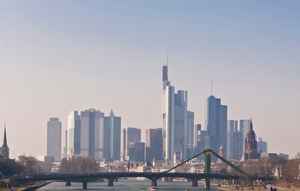
Webansicht Mobile-Ansicht

- WORLD’S BEST HOSPITALS
- Medical Tourism Certification from MTQUA
- Benefits of Medical Tourism Certification
- 5 Steps To Get Medical Tourism Certification
- Guide To Medical Tourism Certification
- Certified Hospitals, Clinics and Businesses
- OUR SERVICES
- INSIDE MEDICAL TRAVEL
- Mission and vision
- Medical traveler’s bill of rights
- Medical traveler’s responsibilities
Germany health care and medical tourism services

The country has more than twice as many hospitals per 1,000 citizens than the United States. German medical facilities also treat almost twice as many patients per capita than hospitals in the United States.
German hospital standards
The medical standards in German hospitals are some of the highest in the world. Modern treatments are available in Germany much earlier than in other countries. Medical education of surgeons and other medical professionals is excellent. Medical universities play a major role in international medical research.
Germany is one of the top leading industrial nations. The infrastructure is extremely well developed. Medical treatment is available in abundance to everyone.
Aftercare and rehabilitation
Hospitals in Germany don’t release patients the day after surgery unless specifically requested to do so. Aftercare plays an important part in the recovery process. Physical therapy and rehabilitation centers in Germany form an integral part in the recovery process and are often appreciated in particular by American patients who may not be used to such extensive aftercare.
Germany is safe
The country is politically stable and the crime rates are relatively low compared to international statistics.
No travel diseases
Germany has no travel diseases; no special vaccinations are required when traveling to Germany.
Highest quality of medical service at competitive rates
Germany compares well in the international average when it comes to costs of treatment. The quality/cost ratio is very favorable and significant savings can be possible.
No waiting lists
With well staffed and abundant medical facilities in Germany the result is generally no waiting list. This is very attractive for people who cannot receive treatment quickly or are not able or do not want to wait for their treatment.
Many languages
Many hospitals have international staff and it is hard to find a language that is not spoken.
Open-minded culture valuing integrity
Germany has become successful as an economic power by accepting international and cultural diversity, even more so with reunification of the two German nations in 1989. Today Germany is a multi-cultural nation with many immigrants strengthening its economy. Some of the core values of the German culture such as honesty, commitment, hard work and punctuality are appreciated around the world.
A leader in research and medical equipment
Germany is the home of many leading medical implants and pharmaceutical companies such as Siemens, Bayer, and Dräger. Hospitals benefit form this by having access to newest medical equipment quickly. In many cases, medical therapies are available long before the are approved in the USA. Once they are approved in the USA, German physicians already have years of experience and data on a new treatment.
Easy to reach
With international airports in most major cities, there are flights in and out of Germany on a daily basis to and from almost every country in the world. With Germany being in the heart of Europe, any European travel destination can be reached with short connecting flights. You are just 1-4 hours flights away from most points in Europe and the Middle East.
Moderate climate
Germany has four seasons. With snow in the winter and warm summer days, the climate is full of contrast, yet without real weather extremes. Patients who are especially intolerant to heat and humidity will enjoy the dry and warm summers in Germany.
Thank you to Premier Healthcare for this information.
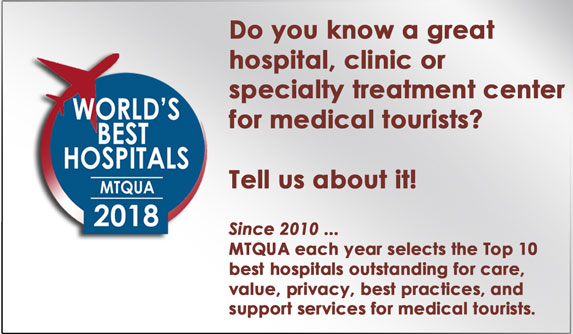
- Enter Email Address Here
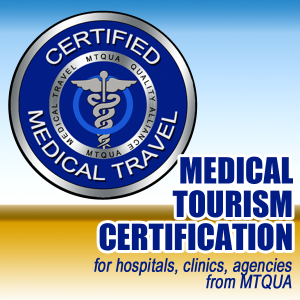
Recent posts
- China | Shanghai Lemen Business International Travel Service Co., Ltd.
- Malaysia | Prince Court Medical Center
- Sri Lanka | Medical Travel Pvt. Ltd.
- India | Sri Ramakrishna Hospital, Coimbatore
- Spain | Salut Empordà Healthcare Hospital de Figueres
- UAE | Zulekha Hospital Dubai
- Turkey | TravelMEDI
- Qatar | Health Link International
- 3 New Year wishes for medical tourism.
- China | Shanghai Hong Yue Healthcare Management

Medical Tourism in Germany: Seeking Healthcare Excellence
Germany is renowned worldwide for its exceptional healthcare system, making it an attractive destination for medical tourism. With its cutting-edge technology, highly skilled medical professionals, and top-notch facilities, Germany offers patients from around the globe the opportunity to receive world-class treatment. This article explores the remarkable benefits and advantages of medical tourism in Germany.
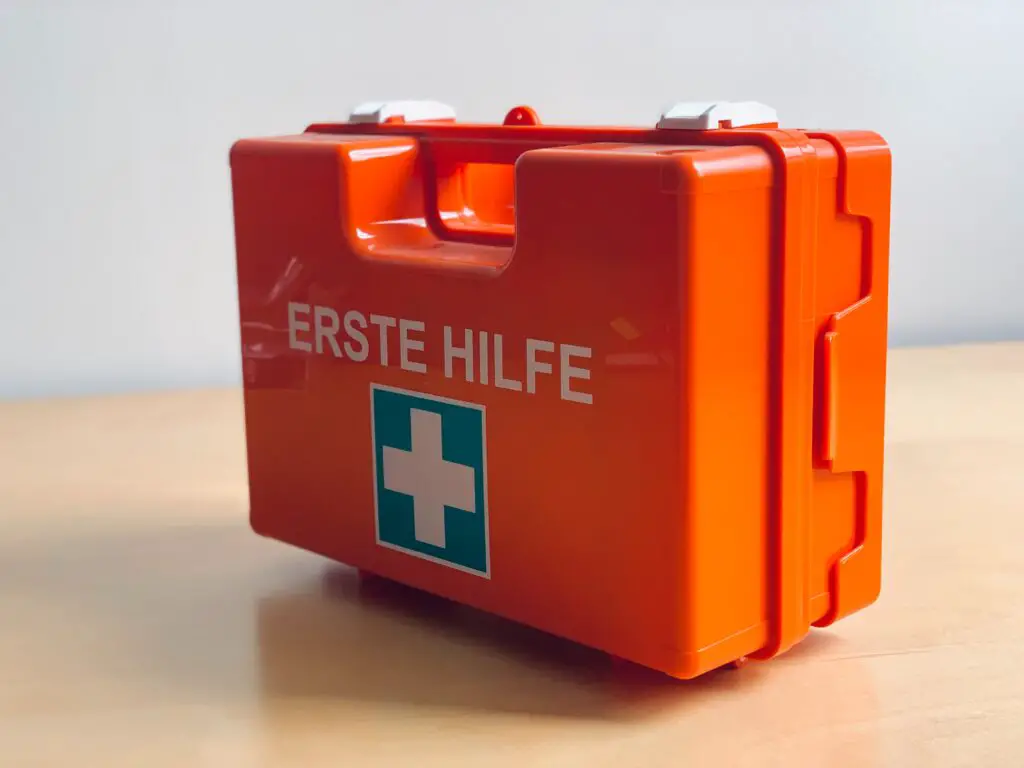
Why Germany is a Preferred Destination for Medical Tourism
1. Advanced Medical Facilities: Germany boasts state-of-the-art medical facilities equipped with the latest technologies. From modern diagnostic tools to advanced treatment methods, patients can expect nothing short of excellence.
2. Highly Skilled Medical Professionals: German doctors are known for their exceptional expertise and proficiency. Through extensive training and rigorous education, they have earned a strong reputation for delivering outstanding medical care across numerous specialities. Patients can be confident in the competence and knowledge of the medical professionals they encounter.
3. Broad Range of Medical Specialties: Germany offers a comprehensive range of medical specialities and treatments. Whether you require cardiac surgery, neurology, oncology, or orthopaedics, you can find a renowned specialist to suit your specific needs.
4. Short Waiting Times: When it comes to medical procedures, time is of the essence. Germany’s healthcare system provides efficient and prompt services, ensuring minimal waiting times. This promptness not only facilitates quick access to care but also aids in the prevention of potential health complications.
However, recently Germany is seeing a drop in Medical Tourism
Popular Medical Procedures in Germany
1. Cosmetic Surgery: Germany attracts individuals seeking cosmetic procedures such as breast augmentation, liposuction, and rhinoplasty. Renowned plastic surgeons offer their expertise in cutting-edge facilities, ensuring patient satisfaction and safety.
2. Advanced Cancer Treatments: With its numerous cancer centres and specialized oncological departments, Germany is a leading destination for patients seeking advanced cancer treatments. The country is renowned for its innovative therapies, using targeted medications and personalized treatment plans.
3. Orthopedic Surgeries: Germany is home to some of the world’s best orthopaedic surgeons who specialize in joint replacements, spinal surgeries, and sports injuries. Patients benefiting from these procedures, infused with the latest technology, often experience improved mobility and enhanced quality of life.
4. Fertility Treatments: Germany is a preferred location for couples seeking fertility treatments. Renowned reproductive specialists and fertility clinics offer a comprehensive range of services, including in vitro fertilization (IVF) and assisted reproductive technologies (ART).
What to Expect as a Medical Tourist in Germany
1. Quality Infrastructure: Germany’s cutting-edge medical facilities are supported by a robust infrastructure, ensuring patient comfort and convenience throughout their medical journey.
2. Multilingual Medical Professionals: Many doctors and medical staff in Germany are proficient in English, alleviating language barriers for international patients. This facilitates effective communication and enhances patient experience and satisfaction.
3. Seamless Coordination: Medical tourism agencies in Germany assist patients in coordinating their entire medical journey, including appointments, accommodation, transportation, and aftercare services. These agencies aim to provide a stress-free experience for patients.
4. Cultural and Touristic Opportunities: While seeking medical care in Germany, patients can also explore the country’s rich cultural heritage and enjoy its breathtaking landscapes. Germany offers a plethora of opportunities for leisure and relaxation, making the medical tourism experience well-rounded and fulfilling.
Conclusion: Medical Tourism in Germany
Germany’s commitment to healthcare excellence, advanced medical facilities, and highly skilled professionals has solidified its position as a premier destination for medical tourism. Patients seeking exceptional medical procedures across a wide range of specialities can trust Germany’s renowned healthcare system. With its unrivalled quality of care, it is no wonder that medical tourists flock to this remarkable country to receive world-class treatment.
Do you have questions about Germany? then contact us by using our Contact Me page. Checkout more posts by us on our Blog .
Similar Posts

Healthcare in Germany: An In-Depth Guide for Expats
Germany is renowned for its high-quality healthcare system, which consistently ranks among the best in the world. For…

Pregnancy and Maternity Care in Germany: What to Expect
Germany is known for its exceptional healthcare system, and when it comes to pregnancy and maternity care, the…

Aging Gracefully in Germany: Senior Healthcare and Long-Term Care Options
The aging population in Germany is on the rise, and as individuals grow older, it becomes essential to…

Does Germany has the best health insurance?
We explain the ins and out of arranging public and private health insurance in Germany and what both…

Mental Health Support in Germany: Resources and Services
Mental health is a crucial aspect of overall well-being, and seeking appropriate support and resources is essential for…

Comprehensive Mental Health Services in Germany
In Germany, there are various choices for individuals looking for mental health assistance. The nation offers a strong…
Leave a Reply Cancel reply
Your email address will not be published. Required fields are marked *
Save my name, email, and website in this browser for the next time I comment.

- Medical Tourism
Medical Tourism to Germany
The healthcare system in germany, leading hospitals for medical tourism in germany.
- Heidelberg University Hospital - Heidelberg Heidelberg University Hospital is one of Europe's leading medical centers, which attracts patients from all over Germany as well as many other countries.
- University Medical Center Hamburg-Eppendorf (UKE) - Hamburg Established in 1884, UKE hospital underwent full modernization in 2009 and emerged as one of the most innovative hospitals in Europe.
- Klinikum Stuttgart - Stuttgart One of Germany's largest hospitals, made up of more than 50 clinics and specialty centers spanning all medical specialties. Kinikum Stuttgart is regarded as one of the best hospitals in Germany, and is a referral center for oncology, pediatrics, ENT and other medical specialties.
- Browse our list of hospitals in Germany .
Common Treatments Done by Medical Tourists in Germany
- Neurosurgery
- Cardiac surgery
- Orthopedic surgery
- Fertility treatment
- Ophthalmology
- Rehabilitation
Malpractice and Liability Laws in Germany
Top notch medical facilities, highly qualified physicians, availablity of complicated medical procedures, safe environment, privacy issues, traveling to germany, entry and exit requirements to germany, statistics of medical tourism in germany, germany medical tourism:, who is already here.
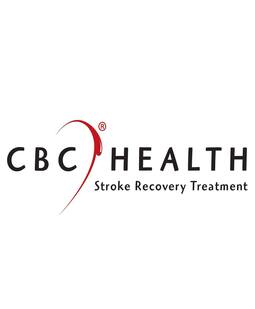
CBC Health AG

University Medical Center Hamburg-Eppendorf

University Medical Center Freiburg

Klinikum Stuttgart

DRK Kliniken Berlin
Proaesthetic

Heidelberg University Hospital

Cyberknife Center Hamburg
Browse by specialty - germany hospitals and clinics, quick links.
- Advertising
- How it Works
- Destinations
- Information
- Terms of use
Featured Cities
- Buenos Aires
- Kuala Lumpur
- Petaling Jaya
Featured Specialties
- Cancer Treatment
- Cardiac Surgery
- Cosmetic Surgery
- Fertility Treatment
- Orthopedic Surgery
- View More Specialties

Copyright © 2008 - 2024 Health-Tourism.com, All Rights Reserved

- Testimonials
- Startup Tools
- Submit Listing
- Digital Marketing
- Our Services
- Launch An LLC
- Startup Resources
- Business Plan
- Frequently Asked Questions
- Common Contract Clauses
- Member Benefits
- Lead Generation
- Website Development
Germany’s Medical Tourism Market Continues To Thrive [Statistics, Trends, and Growth]
- Find us on Facebook
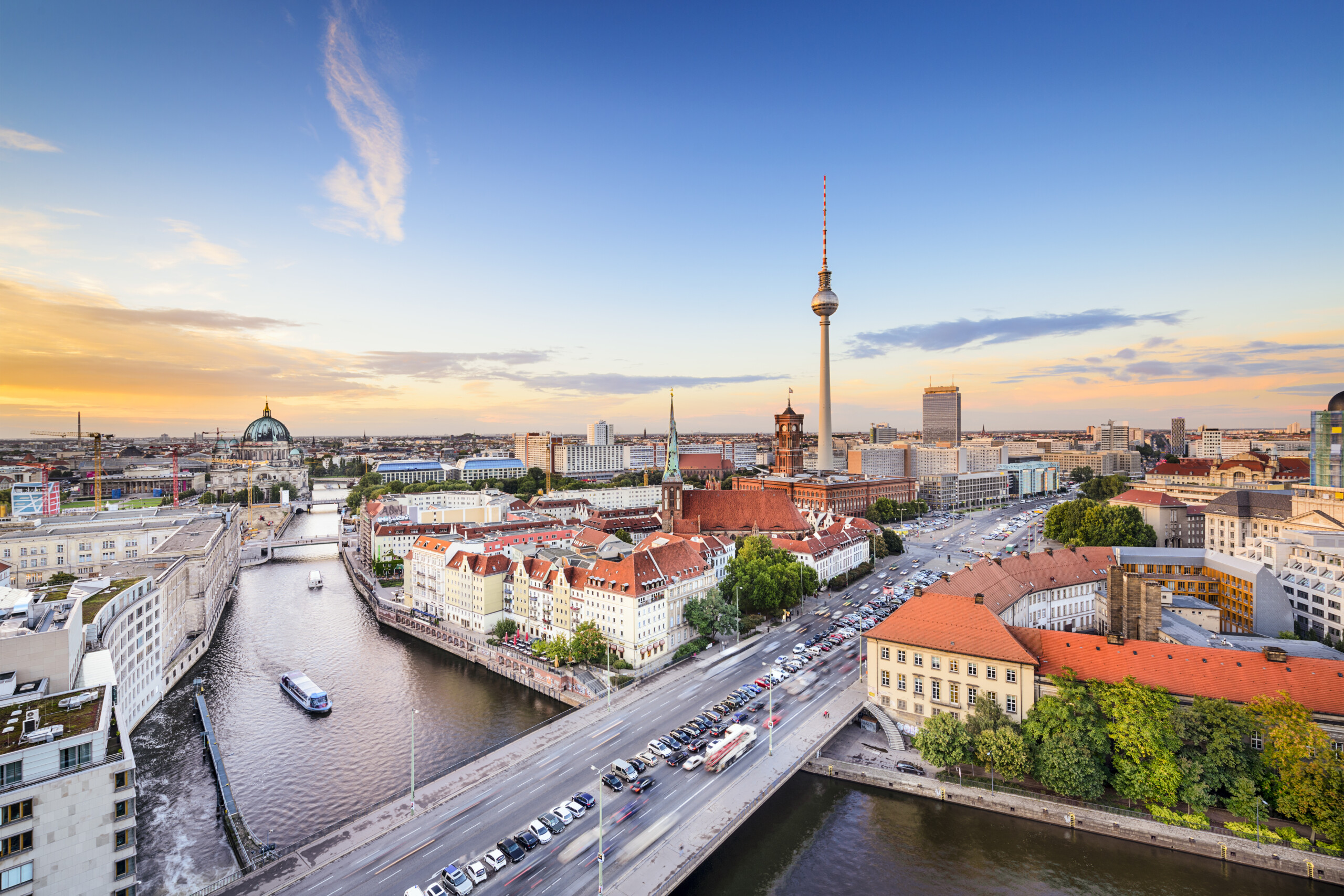
Germany’s medical tourism market is consistently increasing in popularity. Its quality healthcare, ethical standards, and ability to help patients access healthcare quickly at a low cost are some of the reasons medical tourism in Germany remains in high demand.
Medical Tourism Statistics in Germany
Germany ranked 12th globally in quality of facilities, services, and destination environment, while it ranked 36th out of 46 destinations in the medical tourism category in 2020.
When it comes to calculating the number of patients who travel to Germany for treatment, it is somewhat challenging because there are no specific yardsticks to track them. However, most sources that gather data on medical tourism statistics in Germany estimate that it’s around 150,000 to 250,000 annually.
The Most Sought-After Specialities
Although Germany offers various medical treatments to medical tourists, it has developed a remarkable reputation in specific treatments, including cancer, fertility, obesity, cardiology, cardiac surgery, and orthopedics, to name a few. German hospitals are also famous for their comprehensive health and wellness medical checkups.
Medical Treatment in Germany
Most medical travelers come from neighboring countries like Poland, the Netherlands, or France. They visit Germany for medical treatment primarily because of the high-quality standard of the German healthcare system. Also, it is known for its minimal waiting time. Therefore, medical tourists from neighboring countries enjoy faster treatments in Germany compared to their home countries.
Although medical tourism in Germany attracts medical patients worldwide, it has experienced a significant influx of Arab medical tourism patients over the years. Many Arabs from the United Arab Emirates, Saudi Arabia, Kuwait, Qatar, and Oman, who used to seek treatment in America, turn to Germany for treatment to skip the hassle associated with traveling to the United States.
Reach Your Full Potential in Medical Tourism with MTB
At MTB, we are dedicated to supporting professionals and organizations in the medical tourism industry as they strive for success. As a leading provider of certification, contracts, marketing, and support, we offer comprehensive programs, expert guidance, and valuable resources that are designed to help our members achieve their goals and reach their full potential in the global healthcare market. With a focus on excellence and innovation, we help our members stay ahead of the competition and navigate the complex and dynamic world of medical tourism.
Tel/WhatsApp: +1 (561) 909-7178
Email: [email protected]
Share This Story, Choose Your Platform!
About the author: gilliam elliott jr..
- Country Afghanistan Albania Algeria American Samoa Andorra Angola Antigua and Barbuda Argentina Armenia Australia Austria Azerbaijan Bahamas Bahrain Bangladesh Barbados Belarus Belgium Belize Benin Bermuda Bhutan Bolivia Bosnia and Herzegovina Botswana Brazil Brunei Bulgaria Burkina Faso Burundi Cambodia Cameroon Canada Cape Verde Cayman Islands Central African Republic Chad Chile China Colombia Comoros Congo, Democratic Republic of the Congo, Republic of the Costa Rica Côte d'Ivoire Croatia Cuba Cyprus Czech Republic Denmark Djibouti Dominica Dominican Republic East Timor Ecuador Egypt El Salvador Equatorial Guinea Eritrea Estonia Ethiopia Faroe Islands Fiji Finland France French Polynesia Gabon Gambia Georgia Germany Ghana Greece Greenland Grenada Guam Guatemala Guinea Guinea-Bissau Guyana Haiti Honduras Hong Kong Hungary Iceland India Indonesia Iran Iraq Ireland Israel Italy Jamaica Japan Jordan Kazakhstan Kenya Kiribati North Korea South Korea Kosovo Kuwait Kyrgyzstan Laos Latvia Lebanon Lesotho Liberia Libya Liechtenstein Lithuania Luxembourg Macedonia Madagascar Malawi Malaysia Maldives Mali Malta Marshall Islands Mauritania Mauritius Mexico Micronesia Moldova Monaco Mongolia Montenegro Morocco Mozambique Myanmar Namibia Nauru Nepal Netherlands New Zealand Nicaragua Niger Nigeria Northern Mariana Islands Norway Oman Pakistan Palau Palestine, State of Panama Papua New Guinea Paraguay Peru Philippines Poland Portugal Puerto Rico Qatar Romania Russia Rwanda Saint Kitts and Nevis Saint Lucia Saint Vincent and the Grenadines Samoa San Marino Sao Tome and Principe Saudi Arabia Senegal Serbia Seychelles Sierra Leone Singapore Sint Maarten Slovakia Slovenia Solomon Islands Somalia South Africa Spain Sri Lanka Sudan Sudan, South Suriname Swaziland Sweden Switzerland Syria Taiwan Tajikistan Tanzania Thailand Togo Tonga Trinidad and Tobago Tunisia Turkey Turkmenistan Tuvalu Uganda Ukraine United Arab Emirates United Kingdom United States Uruguay Uzbekistan Vanuatu Vatican City Venezuela Vietnam Virgin Islands, British Virgin Islands, U.S. Yemen Zambia Zimbabwe
- Comments This field is for validation purposes and should be left unchanged.

You can see how this popup was set up in our step-by-step guide: https://wppopupmaker.com/guides/auto-opening-announcement-popups/
Become A Professional
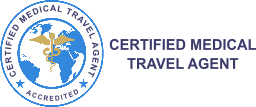
Submit Your Info Below Begin Your Learning Adventure With MTB
- Email Address *
- Phone Number *
- * Country Afghanistan Albania Algeria American Samoa Andorra Angola Anguilla Antarctica Antigua and Barbuda Argentina Armenia Aruba Australia Austria Azerbaijan Bahamas Bahrain Bangladesh Barbados Belarus Belgium Belize Benin Bermuda Bhutan Bolivia Bonaire, Sint Eustatius and Saba Bosnia and Herzegovina Botswana Bouvet Island Brazil British Indian Ocean Territory Brunei Darussalam Bulgaria Burkina Faso Burundi Cambodia Cameroon Canada Cape Verde Cayman Islands Central African Republic Chad Chile China Christmas Island Cocos Islands Colombia Comoros Congo, Democratic Republic of the Congo, Republic of the Cook Islands Costa Rica Croatia Cuba Curaçao Cyprus Czech Republic Côte d'Ivoire Denmark Djibouti Dominica Dominican Republic Ecuador Egypt El Salvador Equatorial Guinea Eritrea Estonia Eswatini (Swaziland) Ethiopia Falkland Islands Faroe Islands Fiji Finland France French Guiana French Polynesia French Southern Territories Gabon Gambia Georgia Germany Ghana Gibraltar Greece Greenland Grenada Guadeloupe Guam Guatemala Guernsey Guinea Guinea-Bissau Guyana Haiti Heard and McDonald Islands Holy See Honduras Hong Kong Hungary Iceland India Indonesia Iran Iraq Ireland Isle of Man Israel Italy Jamaica Japan Jersey Jordan Kazakhstan Kenya Kiribati Kuwait Kyrgyzstan Lao People's Democratic Republic Latvia Lebanon Lesotho Liberia Libya Liechtenstein Lithuania Luxembourg Macau Macedonia Madagascar Malawi Malaysia Maldives Mali Malta Marshall Islands Martinique Mauritania Mauritius Mayotte Mexico Micronesia Moldova Monaco Mongolia Montenegro Montserrat Morocco Mozambique Myanmar Namibia Nauru Nepal Netherlands New Caledonia New Zealand Nicaragua Niger Nigeria Niue Norfolk Island North Korea Northern Mariana Islands Norway Oman Pakistan Palau Palestine, State of Panama Papua New Guinea Paraguay Peru Philippines Pitcairn Poland Portugal Puerto Rico Qatar Romania Russia Rwanda Réunion Saint Barthélemy Saint Helena Saint Kitts and Nevis Saint Lucia Saint Martin Saint Pierre and Miquelon Saint Vincent and the Grenadines Samoa San Marino Sao Tome and Principe Saudi Arabia Senegal Serbia Seychelles Sierra Leone Singapore Sint Maarten Slovakia Slovenia Solomon Islands Somalia South Africa South Georgia South Korea South Sudan Spain Sri Lanka Sudan Suriname Svalbard and Jan Mayen Islands Sweden Switzerland Syria Taiwan Tajikistan Tanzania Thailand Timor-Leste Togo Tokelau Tonga Trinidad and Tobago Tunisia Turkey Turkmenistan Turks and Caicos Islands Tuvalu US Minor Outlying Islands Uganda Ukraine United Arab Emirates United Kingdom United States Uruguay Uzbekistan Vanuatu Venezuela Vietnam Virgin Islands, British Virgin Islands, U.S. Wallis and Futuna Western Sahara Yemen Zambia Zimbabwe Åland Islands Country
Let's Grow Your Business


Submit Your Info Below Take Your Company To The Next Level
What you get with the.

Enter Your Information Below To Get Immediate Access To Facilitator Gold Membership For Just $1,197 $997 !
Members information.
- First Name *
- Last Name *
Billing Address
- Address Street Address Address Line 2 City State / Province / Region ZIP / Postal Code Afghanistan Albania Algeria American Samoa Andorra Angola Anguilla Antarctica Antigua and Barbuda Argentina Armenia Aruba Australia Austria Azerbaijan Bahamas Bahrain Bangladesh Barbados Belarus Belgium Belize Benin Bermuda Bhutan Bolivia Bonaire, Sint Eustatius and Saba Bosnia and Herzegovina Botswana Bouvet Island Brazil British Indian Ocean Territory Brunei Darussalam Bulgaria Burkina Faso Burundi Cambodia Cameroon Canada Cape Verde Cayman Islands Central African Republic Chad Chile China Christmas Island Cocos Islands Colombia Comoros Congo, Democratic Republic of the Congo, Republic of the Cook Islands Costa Rica Croatia Cuba Curaçao Cyprus Czech Republic Côte d'Ivoire Denmark Djibouti Dominica Dominican Republic Ecuador Egypt El Salvador Equatorial Guinea Eritrea Estonia Eswatini (Swaziland) Ethiopia Falkland Islands Faroe Islands Fiji Finland France French Guiana French Polynesia French Southern Territories Gabon Gambia Georgia Germany Ghana Gibraltar Greece Greenland Grenada Guadeloupe Guam Guatemala Guernsey Guinea Guinea-Bissau Guyana Haiti Heard and McDonald Islands Holy See Honduras Hong Kong Hungary Iceland India Indonesia Iran Iraq Ireland Isle of Man Israel Italy Jamaica Japan Jersey Jordan Kazakhstan Kenya Kiribati Kuwait Kyrgyzstan Lao People's Democratic Republic Latvia Lebanon Lesotho Liberia Libya Liechtenstein Lithuania Luxembourg Macau Macedonia Madagascar Malawi Malaysia Maldives Mali Malta Marshall Islands Martinique Mauritania Mauritius Mayotte Mexico Micronesia Moldova Monaco Mongolia Montenegro Montserrat Morocco Mozambique Myanmar Namibia Nauru Nepal Netherlands New Caledonia New Zealand Nicaragua Niger Nigeria Niue Norfolk Island North Korea Northern Mariana Islands Norway Oman Pakistan Palau Palestine, State of Panama Papua New Guinea Paraguay Peru Philippines Pitcairn Poland Portugal Puerto Rico Qatar Romania Russia Rwanda Réunion Saint Barthélemy Saint Helena Saint Kitts and Nevis Saint Lucia Saint Martin Saint Pierre and Miquelon Saint Vincent and the Grenadines Samoa San Marino Sao Tome and Principe Saudi Arabia Senegal Serbia Seychelles Sierra Leone Singapore Sint Maarten Slovakia Slovenia Solomon Islands Somalia South Africa South Georgia South Korea South Sudan Spain Sri Lanka Sudan Suriname Svalbard and Jan Mayen Islands Sweden Switzerland Syria Taiwan Tajikistan Tanzania Thailand Timor-Leste Togo Tokelau Tonga Trinidad and Tobago Tunisia Turkey Turkmenistan Turks and Caicos Islands Tuvalu US Minor Outlying Islands Uganda Ukraine United Arab Emirates United Kingdom United States Uruguay Uzbekistan Vanuatu Venezuela Vietnam Virgin Islands, British Virgin Islands, U.S. Wallis and Futuna Western Sahara Yemen Zambia Zimbabwe Åland Islands Country
Payment Info
- Facilitator Gold Membership (Including the certification & other resources) Price:
- Credit Card American Express Discover MasterCard Visa Supported Credit Cards: American Express, Discover, MasterCard, Visa Card Number Month 01 02 03 04 05 06 07 08 09 10 11 12 Year 2024 2025 2026 2027 2028 2029 2030 2031 2032 2033 2034 2035 2036 2037 2038 2039 2040 2041 2042 2043 Expiration Date Security Code Cardholder Name
- Additional Certified Medical Travel Agent Course – For Partners and Employees $799 $397
- The Medical Tourism Facilitator Startup Guide (Hardcopy Book) ($49.95)
- Premium Profile – List Your Company At The Top Of Our Directories. ($99.99)
- Total $0.00

- Health, Pharma & Medtech ›
Health System
Industry-specific and extensively researched technical data (partially from exclusive partnerships). A paid subscription is required for full access.
Medical tourism ranking of Germany 2020, by criteria
Global medical tourism ranking of germany out of 46 destinations in 2020, by criteria.
To access all Premium Statistics, you need a paid Statista Account
- Immediate access to all statistics
- Incl. source references
- Download as PDF, XLS, PNG and PPT
Additional Information
Show sources information Show publisher information Use Ask Statista Research Service
Rankings are based on the 2020-2021 Medical Tourism Index of 46 global destinations.
Other statistics on the topic Medical tourism in Europe
- Health expenditure as a percentage of GDP in select countries 2022
Demographics
- Countries with the highest life expectancy 2023, by gender
- Per capita health expenditure in selected countries 2022
State of Health
- Obesity rate in South Korea 2008-2022
To download this statistic in XLS format you need a Statista Account
To download this statistic in PNG format you need a Statista Account
To download this statistic in PDF format you need a Statista Account
To download this statistic in PPT format you need a Statista Account
As a Premium user you get access to the detailed source references and background information about this statistic.
As a Premium user you get access to background information and details about the release of this statistic.
As soon as this statistic is updated, you will immediately be notified via e-mail.
… to incorporate the statistic into your presentation at any time.
You need at least a Starter Account to use this feature.
- Immediate access to statistics, forecasts & reports
- Usage and publication rights
- Download in various formats
You only have access to basic statistics. This statistic is not included in your account.
- Instant access to 1m statistics
- Download in XLS, PDF & PNG format
- Detailed references
Business Solutions including all features.
Statistics on " Healthcare in South Korea "
- Estimated global per capita health spending 2019 & 2050
- Health spending as percent of GDP in South Korea 2000-2022
- Pharmaceutical spending as share of GDP South Korea 2000-2022
- Total medical expenditure South Korea 2012-2022
- Spending on health per capita South Korea 2012-2022
- Pharmaceutical spending per capita in South Korea 2000-2022
- Number of healthcare providers South Korea 2000-2022
- Number of hospital beds per 1,000 inhabitants South Korea 2002-2021
- Number of doctors per 1,000 inhabitants in South Korea 2000-2021
- Number of nurses per 1,000 inhabitants in South Korea 2002-2021
- Life expectancy at birth South Korea 1970-2022
- Death rate South Korea 1970-2023
- Five-year survival rate for cancer South Korea 1995-2021
- Medical care institution visits per person South Korea 2012-2022
- National health insurance total revenue South Korea 2011-2021
- National health insurance total expenditure South Korea 2011-2021
- National health insurance benefits paid South Korea 2011-2021
- National Health Insurance contribution per capita South Korea 2010-2021
- National Health Insurance benefits per capita South Korea 2010-2021
- Medical tourists in South Korea in 2022, by country of origin
- Distribution of medical tourists in South Korea in 2022, by department
- Number of foreign patients at internal medicine department South Korea 2012-2022
- Foreign plastic surgery patient number South Korea 2009-2022
- Foreign dermatology patient number South Korea 2012-2022
- Foreign health checkup patient number South Korea 2012-2022
Other statistics that may interest you Healthcare in South Korea
Global overview
- Basic Statistic Estimated global per capita health spending 2019 & 2050
- Premium Statistic Health expenditure as a percentage of GDP in select countries 2022
- Premium Statistic Per capita health expenditure in selected countries 2022
- Premium Statistic Countries with the highest life expectancy 2023, by gender
Cost and expenditure
- Basic Statistic Health spending as percent of GDP in South Korea 2000-2022
- Basic Statistic Pharmaceutical spending as share of GDP South Korea 2000-2022
- Premium Statistic Total medical expenditure South Korea 2012-2022
- Basic Statistic Spending on health per capita South Korea 2012-2022
- Basic Statistic Pharmaceutical spending per capita in South Korea 2000-2022
Infrastructure
- Premium Statistic Number of healthcare providers South Korea 2000-2022
- Basic Statistic Number of hospital beds per 1,000 inhabitants South Korea 2002-2021
- Basic Statistic Number of doctors per 1,000 inhabitants in South Korea 2000-2021
- Basic Statistic Number of nurses per 1,000 inhabitants in South Korea 2002-2021
State of health
- Basic Statistic Life expectancy at birth South Korea 1970-2022
- Premium Statistic Obesity rate in South Korea 2008-2022
- Premium Statistic Death rate South Korea 1970-2023
- Premium Statistic Five-year survival rate for cancer South Korea 1995-2021
- Premium Statistic Medical care institution visits per person South Korea 2012-2022
Public health insurance system
- Premium Statistic National health insurance total revenue South Korea 2011-2021
- Premium Statistic National health insurance total expenditure South Korea 2011-2021
- Premium Statistic National health insurance benefits paid South Korea 2011-2021
- Premium Statistic National Health Insurance contribution per capita South Korea 2010-2021
- Premium Statistic National Health Insurance benefits per capita South Korea 2010-2021
Foreign patients
- Premium Statistic Medical tourists in South Korea in 2022, by country of origin
- Premium Statistic Distribution of medical tourists in South Korea in 2022, by department
- Premium Statistic Number of foreign patients at internal medicine department South Korea 2012-2022
- Premium Statistic Foreign plastic surgery patient number South Korea 2009-2022
- Premium Statistic Foreign dermatology patient number South Korea 2012-2022
- Premium Statistic Foreign health checkup patient number South Korea 2012-2022
Further related statistics
- Premium Statistic Estimated global medical tourism market size and spending per visit 2016
- Premium Statistic Range of savings in top medical tourism destinations compared to U.S. 2016
- Basic Statistic Top global destinations based on number of medical tourists 2015
- Premium Statistic Interest in medical tourism related terms in Google search by select country 2014
- Premium Statistic Medical travel market size in China 2017-2021
- Premium Statistic Number of Mongolian medical tourists South Korea 2009-2022
- Premium Statistic Number of medical tourists from Thailand to South Korea 2009-2022
- Premium Statistic Opinion on equality in healthcare system Saudi Arabia 2018
- Premium Statistic Pharmacies promoting medication adherence for chronic disease patients in Italy 2021
- Premium Statistic Share of patients that can be managed through virtual care in England 2018
- Premium Statistic Problems related to healthcare services in Italy 2022
- Basic Statistic Payments for health services by Alzheimer's or dementia patients in the U.S. 2015
- Basic Statistic Performance on communication between GPs and specialists (UK) 2015
- Premium Statistic Industry revenue of “all other ambulatory health care services“ in Washington 2012-2024
- Premium Statistic Industry revenue of “home health care services“ in New Jersey 2012-2024
- Premium Statistic Healthcare service market value in China 2012-2030
Further Content: You might find this interesting as well
- Estimated global medical tourism market size and spending per visit 2016
- Range of savings in top medical tourism destinations compared to U.S. 2016
- Top global destinations based on number of medical tourists 2015
- Interest in medical tourism related terms in Google search by select country 2014
- Medical travel market size in China 2017-2021
- Number of Mongolian medical tourists South Korea 2009-2022
- Number of medical tourists from Thailand to South Korea 2009-2022
- Opinion on equality in healthcare system Saudi Arabia 2018
- Pharmacies promoting medication adherence for chronic disease patients in Italy 2021
- Share of patients that can be managed through virtual care in England 2018
- Problems related to healthcare services in Italy 2022
- Payments for health services by Alzheimer's or dementia patients in the U.S. 2015
- Performance on communication between GPs and specialists (UK) 2015
- Industry revenue of “all other ambulatory health care services“ in Washington 2012-2024
- Industry revenue of “home health care services“ in New Jersey 2012-2024
- Healthcare service market value in China 2012-2030

Medical Tourism in Germany
Determinants of International Patients‘ Destination Choice
- © 2018
- Klaus Schmerler 0
Martin Luther University Halle-Wittenberg, Halle (Saale), Germany
You can also search for this author in PubMed Google Scholar
- Provides essential new insights into medical tourism
- Presents a case study on inbound medical tourism in Germany
- Develops a sound modeling framework for quantifying the drivers and effects of international patients’ choice of destination
Part of the book series: Developments in Health Economics and Public Policy (HEPP, volume 13)
3653 Accesses
10 Citations
10 Altmetric
This is a preview of subscription content, log in via an institution to check access.
Access this book
- Available as EPUB and PDF
- Read on any device
- Instant download
- Own it forever
- Durable hardcover edition
- Dispatched in 3 to 5 business days
- Free shipping worldwide - see info
Tax calculation will be finalised at checkout
Other ways to access
Licence this eBook for your library
Institutional subscriptions
Table of contents (7 chapters)
Front matter, a dearth of empirical investigations.
Klaus Schmerler
Traveling for Treatment: Taxonomy, Patient Flows and Candidate Drivers
The sum of its parts: a structured approach to the modeling of destination choice, drivers of medical travel at the national level, drivers of medical travel at the hospital level, drivers of medical tourism at the individual level, connecting the dots: implications for destinations and policy makers.
- Medical tourism
- Medical travel
- Patient mobility
- Cultural proximity
- Gravity model
About this book
Authors and affiliations, about the author, bibliographic information.
Book Title : Medical Tourism in Germany
Book Subtitle : Determinants of International Patients‘ Destination Choice
Authors : Klaus Schmerler
Series Title : Developments in Health Economics and Public Policy
DOI : https://doi.org/10.1007/978-3-030-03988-2
Publisher : Springer Cham
eBook Packages : Economics and Finance , Economics and Finance (R0)
Copyright Information : Springer Nature Switzerland AG 2018
Hardcover ISBN : 978-3-030-03987-5 Published: 12 January 2019
eBook ISBN : 978-3-030-03988-2 Published: 28 December 2018
Series ISSN : 0927-4987
Edition Number : 1
Number of Pages : XVIII, 248
Number of Illustrations : 2 b/w illustrations, 62 illustrations in colour
Topics : Health Economics , Tourism Management , Public Health , International Economics , Econometrics , Health Care Management
- Publish with us
Policies and ethics
- Find a journal
- Track your research
An official website of the United States government
The .gov means it’s official. Federal government websites often end in .gov or .mil. Before sharing sensitive information, make sure you’re on a federal government site.
The site is secure. The https:// ensures that you are connecting to the official website and that any information you provide is encrypted and transmitted securely.
- Publications
- Account settings
Preview improvements coming to the PMC website in October 2024. Learn More or Try it out now .
- Advanced Search
- Journal List
- Int J Environ Res Public Health

Demographics and Trends for Inbound Medical Tourism in Germany for Orthopedic Patients before and during the COVID-19 Pandemic
Tizian heinz.
1 Department of Orthopaedic Surgery, Julius-Maximilians University Wuerzburg, Koenig-Ludwig-Haus, Brettreichstrasse 11, 97074 Wuerzburg, Germany
Annette Eidmann
Axel jakuscheit.
2 Distance and Independent Studies Center, Technical University Kaiserslautern, Erwin-Schroedinger-Straße 57, 67663 Kaiserslautern, Germany
Maximilian Rudert
Ioannis stratos, associated data.
The raw data we used for the current data analysis can be found in the open repository github ( https://github.com/ioannis-stratos/G-DRG_1 (accesed on 18 September 2022)).
Medical tourism is a rapidly growing sector of economic growth and diversification. However, data on the demographics and characteristics of the traveling patients are sparse. In this study, we analyzed the common demographic properties and characteristics of the inbound medical tourists seeking orthopedic medical care in Germany for the years 2010 to 2019 compared to a domestic group. At the same time, we examined how the COVID-19 pandemic outbreak of 2020 changed the field of medical tourism in Germany. Calculations were performed using administrative hospital data provided by the Federal Statistical Department of Germany. Data were analyzed from the years 2010 to 2020. A total of six elective orthopedic surgery codes (bone biopsy, knee arthroplasty, foot surgery, osteotomy, hardware removal, and arthrodesis) were identified as key service indicators for medical tourism and further analyzed. Factors including residence, sex, year, and type of elective surgery were modeled using linear regression analysis. Age and sex distributions were compared between patients living inside Germany (DE) or outside Germany (non-DE). Between 2010 and 2020, 6,261,801 orthopedic procedures were coded for the DE group and 27,420 key procedures were identified for the non-DE group. Medical tourists were predominantly male and significantly younger than the domestic population. The linear regression analysis of the OPS codes over the past years showed a significantly different slope between the DE and non-DE groups only for the OPS code “hardware removal”. With the COVID-19 pandemic, an overall decline in performed orthopedic procedures was observed for the non-DE and the DE group. A significant reduction below the 95% prediction bands for the year 2020 could be shown for hardware removal and foot surgery (for DE), and for hardware removal, knee arthroplasty, foot surgery, and osteotomy (for non-DE). This study is the first to quantify inbound medical tourism in elective orthopedic surgery in Germany. The COVID-19 pandemic negatively affected many—but not all—areas of orthopedic surgery. It has to be seen how this negative trend will develop in the future.
1. Introduction
Medical tourism (MT) is defined as the process where patients travel outside the geographic borders of their home region or home country to obtain medical care. The driving force for medical travel includes but is not limited to the affordability of medical procedures, easier access to care and health, as well as more developed and specialized medical care in foreign regions [ 1 ]. Many authors subcategorize MT into domestic, inbound, and outbound. Domestic MT refers to patients who seek medical treatment outside their hometown or home region but stay within the geographic borders of their country. Inbound MT includes patients that cross borders into a specific foreign country to receive medical care, whereas outbound medical tourists leave their home country for medical care abroad [ 2 ]. As a result, a nation can treat patients traveling from other countries (inbound medical tourism), while at the same time, the citizens of this nation can seek medical treatment abroad (outbound medical tourism).
Patients are increasingly transforming into informed consumers, who choose their own providers out of a broad market place that is not limited to geographical borders. MT has also become a prominent phenomenon in the European Union (EU). The financial and economic impact of EU citizens seeking medical care in Germnay has generated an estimated economic volume of about 200 million EUR per year, thereby being one of the highest of all EU member states, not yet including international patients from outside the EU seeking medical care in Germany [ 3 ]. This demonstrates that MT, though a relatively young branch of international trade, has advanced into a billion-dollar market during the last decades, attracting the interest of the scientific community as a potential sector of economic growth and diversification [ 4 ]. MT is already contributing 1% (aproximatelly 10 billion EUR) to the publicly financed EU health market [ 5 ]. Germany is actively participating in this market. From a global point of view, Germany is ranked as the 12th most attractive MT destination among 46 countries [ 6 ]. Schmerler also characterizes Germany as one of the leading destinations for inbound medical tourists among the U.K., U.S., Russia, Australia, and the UAE [ 7 ]. Additionally, Germany has a good reputation among medical travelers, making it one of the most popular destinations of medical care seekers [ 4 ]. Against the background of Europe being a popular destination for MT, it is of outmost importance to analyze and screen inbound patient flows for the establishment of a framework towards controlled cross-border healthcare, thereby enhancing the related benefits of MT, while at the same time recognizing and minimizing potentially adverse effects.
Predominantly, surgical departments are popular destinations for medical tourists [ 8 , 9 ]. Specifically, orthopedic surgery departments have a substantial financial benefit from inbound MT. According to Lunt et al. [ 8 ], orthopedic surgical treatments are frequent medical services for inbound medical tourism. Moreover, procedures such as elective hip and knee replacement, arthroscopy, and spinal surgery are commonly pursued by medical travelers [ 10 ]. During the COVID-19 pandemic, non-essential travel to Germany was restricted by the government during the year 2020. Recent reports show that medical tourism in Germany declined compared to previous years and further reduced after the year 2020 [ 11 ].
The intention of this study was twofold: Firstly, it was the aim of this analysis to investigate how travel and healthcare-related organizational restrictions in Germany due to the COVID-19 panedmic would translate to a visibly altered framework of MT. Secondly, the trend and development of MT in the orthopedic field in Germany was to be investigated. Therefore, the demographics and frequency of selected orthopedic services provided to medical tourists were analyzed for the years 2010–2020.
2. Materials and Methods
2.1. source data.
Calculations were performed using the case-based hospital statistics dataset 23141-0103 from the Federal Statistical Department of Germany (title: Operations and procedures for inpatients: Germany, years, sex, age groups, patient’s place of residence, operations and procedures; https://www-genesis.destatis.de , accessed on 27 September 2022). The data were retrieved on 30 June 2022. The dataset 23141-0103 contains every surgical procedure coded in any hospital in Germany, as well as patient demographic data (sex, age, and permanent residence). Analysis focused from 2010 to 2020. The search also included the year 2020, which marked the beginning of the COVID-19 outbreak’s global travel restrictions.
2.2. OPS Codes and Surgical Procedure Identification
Each surgical procedure coded in the 23141-0103 dataset is based on the “Operation and Procedure Classification System” (OPS). The OPS is currently the official coding system for medical procedures in Germany. The monohierarchical classifications of the OPS System organize medical procedures into classes of different hierarchical levels: chapters are divided into groups, groups into categories; categories usually have subcategories. Due to this detailed structure, the entire OPS catalog contains 1685 OPS codes in the four-digit hierarchy level. Out of these 1685 codes, we identified six OPS codes that are clearly associated with elective orthopedic surgical procedures. These “elective orthopedic OPS codes” were bone biopsy by incision (OPS-1-503; bone biopsy), implantation of endoprosthesis of knee joint (OPS-5-822; knee arthroplasty), operations on metatarsals and phalanges of the foot (OPS-5-788; foot surgery), osteotomy and corrective osteotomy (OPS-5-781; osteotomy) and removal of osteosynthesis material (OPS-5-787; hardware removal), and arthrodesis (OPS-5-808; arthrodesis).
2.3. Data Processing
A table containing grouped demographic data and OPS codes was generated from the 23141-0103 dataset. The table contained the following data: elective orthopedic OPS codes (with 6 subcategories: “OPS-1-503”, “OPS-5-822”, “OPS-5-788”, ”OPS-5-787”, “OPS-5-808”), age (with 22 subcategories: “under 1”, “1–5”, “5–10”,…,”85–90”, “90–95”, “over 95”), sex (two subcategories: “male” and “female”), year of acquisition (11 subcategories: “2010”, “2011”, …, “2018”, “2019” and “2020”), and permanent residence (18 subcategories: “16 German states”, “foreign”, and “unknown”). All tabled data were unpivoted using R (RStudio v.1.3.1093; Boston, United States). The category “permanent residence” was rearranged into 2 subcategories: “Germany” (DE; 8,195,795 OPS codes) and “abroad” (non-DE; 38,624 OPS codes). Data from “unknown” residence (14,478 OPS codes) were excluded from the analysis. Furthermore, the age category was rearranged into 4 subcategories: “0–17”, “18–39”, “40–64”, and “over 65”. Data summarization was performed using the visual analytics software Tableau Desktop (Tableau Software, v. 2021, Seattle, WA, USA).
2.4. Statistical Analysis
A linear regression model was used to describe and model both the effects of sex and the number of orthopedic OPS-coded procedures for the non-De and the De groups over time. The slopes of the correlation lines were compared, and p -values were calculated to test the null hypothesis. To elucidate if the observed data from the year 2020 were within the statistical expectation, a regression analysis was performed for the years 2010–2019. The year 2020 was excluded from the calculation. The 95% prediction bands of the best fit line were calculated for the years 2010 to 2020 based on the values from 2010 to 2019. After this, the observed values for the year 2020 were added to the diagram. A statistically significant decline in the procedure of interest was assumed if the observed procedure volume for the year 2020 was below the 95% prediction band.
To identify differences between group frequencies and group distributions, Pearson’s Chi-squared test was applied (comparison of age distributions for the non-De and De groups). All statistical calculations were performed using the GraphPad Prism program v. 9.3 (GraphPad Software; San Diego, CA, USA). The statistical significance level was set at p = 0.05.
Between 2010 and 2020, 6,308,937 orthopedic procedures were coded for patients with permanent residence in Germany and 27,420 key procedures were identified for patients with permanent residence outside Germany. A total of 13,859 procedures were performed on male patients and 13,561 on female patients in the non-DE group vs. 2,161,838 for male patients and 4,147,099 for female patients in the DE group. The proportion of female patients was significantly higher in the DE group compared to the non-DE group (ratio ♀/♂ non-DE: 1.0/1; DE: 1.9/1; x 2 = 3208, df = 1; p < 0.001). The COVID-19 pandemic did not have an impact on the sex ratio between the non-DE and the DE groups (ratio ♀/♂ for the period 2010–2019 for the non-DE group: 1.0/1; and for the DE group: 1.9/1; for 2020, for the non-DE group: 0.8/1; and for the DE group: 1.7/1; x 2 = 0.936, df = 1; p = 0.33). The most frequently coded orthopedic procedures in descending order turned out to be “hardware removal”, “knee arthroplasty”, and “foot surgery” for the DE and the non-DE groups, respectively ( Table 1 ). A statistical analysis of the distribution of surgical procedures showed a significant difference between the DE and the non-DE groups (χ 2 = 6661, df = 5, p < 0.001): surgical procedures, including knee arthroplasty and foot surgery, were underrepresented, whereas hardware removal and osteotomies were overrepresented in the non-DE group compared to the DE group ( Table 1 ).
Number of OPS codes for both groups between 2010 and 2020.
Total number for six OPS codes (bone biopsy, knee arthroplasty, hardware removal, arthrodesis, osteotomy, and foot surgery) for the years 2010–2020 subdivided for the DE and the non-DE groups, as well as the percentage of the sum (in parenthesis). Χ 2 = 6661, df = 5, * p < 0.001 vs. non-De.
A linear regression analysis of the six different OPS codes only showed a significantly different slope between the DE and non-DE groups for the OPS code “hardware removal” ( Table 2 ), indicating an upward trend in the DE group compared to a decreasing number of hardware removals in the non-DE group over the years.
Results of the linear regression analysis for both groups (DE and non-DE).
Linear regression analysis for the “relative count to 2010” for the period 2010–2019 for the DE and the non-DE groups (complementary table to Figure 1 ). Values are given for the non-DE and the DE groups (slope, intercept on the y-axis, R 2 , as well as level of significance) for simple regression lines.
During the outbreak of the COVID-19 pandemic, a special focus was placed on the year 2020. For this, we concentrated on the change in the total number of OPS codes, as well as the relative count ( Table 3 and Table 4 ). The number of “bone biopsy” procedures performed in the DE group was almost at the same level in 2020 as in 2019 (aproximately 12,200 procedures per year). A moderate decrease in bone biopsies was observed among medical tourists (52 procedures in 2019 vs. 43 procedures in 2020; Figure 1 and Table 4 ). For the OPS codes “hardware removal” and “foot surgery”, both the DE and non-DE groups fell below the 95% prediction interval, indicating a statistically significant volume decline both for inbound and domestic patients ( Figure 1 and Table 4 ). At the same time, the procedures coded as “knee arthroplasty” and “osteotomy” only fell below the 95% prediction interval for the non-DE group, showing a statistically significant decline only for medical tourists ( Figure 1 and Table 4 ). A decline was also observed for the arthrodesis procedure both for the DE and non-DE groups, but only being statistically significant for the DE group.

Relative change for each orthopedic procedure for the years 2010–2020. The relative count for each surgical procedure (bone biopsy, knee arthroplasty, hardware removal, arthrodesis, osteotomy, and foot surgery) was expressed as a fraction (in %) of each value (per year and group) divided by the corresponding value (per group) for the year 2010. Data for the non-DE group are given in the diagram with blue circles (“○”), and data for the DE group are marked with black squares (“▢”). The straight blue line represents the linear regression of the non-DE group, whereas the straight black line illustrates the linear regression of the DE group. The 95% prediction intervals of each dataset are given as dotted lines (small dotted line for the DE group and big dotted line for the non-DE group). The values for the year of 2020 are displayed in red color. The absolute values can be found in Table 4 .
Comparison of relative procedure counts for the years 2010–2019 and 2020.
Comparison of the mean relative counts and the relative increases per year of the six different OPS codes for the years 2010 to 2019 with the observed relative count of the pandemic year of 2020. Significant differences between the observed relative count 2020 vs. the mean relative counts from 2010 to 2019 (* p < 0.05; t -test).
Total count for surgical procedures for the years 2010–2020.
Numerical representation of the total count of the six different OPS codes for the years 2010 to 2020.
Regarding the age distribution of domestic and inbound patients, there were statistically significant differences for patients undergoing bone biopsy, hardware removal, and arthrodesis, with inbound patients yielding an overall younger age at time of surgery ( Figure 2 for relative values and Table 5 for absolute values) (χ 2 = 29.02, df = 3, p < 0.01).

Relative count for orthopedic procedures per age group. The relative count for each surgical procedure (bone biopsy, knee arthroplasty, hardware removal, arthrodesis, osteotomy, and foot surgery) was expressed as a percentile fraction of the age subgroup (<17, 18–39, 40–64, or >65) divided by the sum of all subgroups. The absolute values can be found in Table 5 . Pearson’s Chi-squared test (DE vs. non-DE; Chi-squared; * p < 0.01).
Total count for orthopedic procedures per age group.
Numerical representation of the total count of the six different orthopedic procedures per age group.
4. Discussion
Nowadays, travel and tourism are among the most valued leisure activities worldwide. With MT, a relatively new branch under the umbrella sector of travel and tourism has emerged with both economic, social, and political implications. However, a sharp definition of MT is still lacking, hampering ongoing research on this topic, often by conflating MT with health tourism and medical travel [ 12 , 13 ].
Traveling for the enhancement of one’s health and well-being is not a new phenomenon, as it dates back far to ancient times. The Sumerians (about 4000 BC) were probably the first to build health complexes around hot springs, attracting people from all around for the proposed therapeutic effects of thermal medicine [ 14 , 15 ]. The ancient Greeks set the fundamentals of health tourism and healthcare travel, attracting people from far away to the Temple of Asclepius, which in those times had transformed into a vivid health center with baths, hot springs, gymnasiums, and snake farms [ 15 , 16 ]. Still today, spa tourism, wellness tourism, and pilgrimage is as present as ever before, with a significant contribution to the whole health tourism sector [ 17 ]. Nevertheless, a clear distinction between MT and health tourism should be made. While health tourism usually summarizes different forms of traveling for health-related reasons, including spa and wellness tourism, offshore surgery, and dental procedures, the scope of MT is of a more confined nature [ 18 ]. Many authors have suggested that the remit of MT should include invasive procedures such as surgery, as opposed to wellness and spa tourism, where the focus is typically put on preventive care and lifestyle treatments [ 19 , 20 , 21 ]. At the same time, not all tourists that undergo invasive treatments and procedures abroad can be assigned to medical tourism, as shown by Wongkit and McKercher, who found 39.7% of surveyed visitors to Thailand that underwent medical procedures did so without the intention of receiving medical care at the time of departure from their country of residence [ 22 ]. By definition, MT should therefore include the intention of undergoing medical procedures abroad as the primary reason for traveling. Cohen has developed a fivefold topology addressing this issue: (1) “mere tourist”; (2) “medicated tourist”; (3) “medical tourist proper”; (4) “vacationing patient”; (5) “mere patient” [ 23 ]. The vacationing patient visits the country of destination with the primary intention of getting medical care, but the trip entails some vacationing activities as well. The mere patient travels with the sole intention of getting medical care and does not take part in vacationing activities. The mere patient and the vacationing patient are collectives that can be clearly assigned to medical tourism. Due to the nature of the elective orthopedic procedures analyzed in this study, patients should be assigned to the latter two (mere patient and vacationing patient).
The reasons for seeking medical care abroad are diverse and range from better medical care to easier accessibility to lower overall costs. In particular, the steep price difference of medical care between developed countries and developing countries is often cited as the driving force of patient flows from industrial states to less developed states for medical procedures. In particular, medical services are estimated to cost one fifth to one tenth in India compared to industrial countries [ 24 ]. At the same time, a patient flow from developing countries to industrial states is observed, which is often generated by wealthy people from developing countries seeking the high-quality care of high-tech medicine in countries such as the USA, Western Europe, and the UK. For Germany, this is well demonstrated by a high number of inbound Russian patients seeking medical care in the eastern part of Germany, especially in the state of Saxony [ 20 ].
However, data on the demographic characteristics of patients and the type of medical care that is typically sought after are still sparse. [ 25 ]. Moreover, treatment of the musculoskeletal system is thought to belong to the second most common treatment modalities that foreign patients engage in [ 10 , 26 , 27 ].
As a result of the conducted study, an important discrepancy regarding the age and gender distribution was found between inbound patients and domestic patients residing in Germany. Patients from abroad seeking medical treatment in Germany were overall of a younger age with a predominance of the male gender. This finding is in line with the current literature. Guy et al. also found a male predominance in a survey asking 194 American residents for their willingness to seek medical treatment abroad [ 28 ]. Noree et al. further demonstrated a male predominance among traveling patients seeking medical care in Thailand [ 26 ]. The reason for this phenomenon is still unclear and of ongoing research. However, the discrepancy between male and female patients getting proper medical care is not completely new and is more commonly known as “gender bias in medicine”, describing an overall male predominance in receiving medical care, despite a balanced distribution of diseased males and females [ 29 ]. The possible reasons for this gender inequality may be seen in hindering socioeconomical and familial circumstances in the country of origin that account more for the female than for the male population. Identical patterns of age and gender distribution for traveling medical tourists are described for host countries such as Egypt, Iran, and India [ 30 , 31 , 32 ]. Overall, for the analyzed period of 2010 to 2020, there was an upward trend for the majority of procedures evaluated, indicating a growing trend for medical tourists seeking healthcare abroad [ 33 ].
With the outbreak of the COVID-19 pandemic, an overall drop in performed procedures was seen for the domestic population in Germany, as well as for medical tourists seeking healthcare in Germany. However, the data of this study suggest that the decline in performed elective orthopedic procedures turned out to be of a higher degree for the inbound tourists seeking medical care. Depending on the elective procedure of interest, there were great differences in volume changes, with the OPS-coded “bone biopsy” yielding the least decline both for the DE and non-DE groups. Such differences and variance within the elective orthopedic procedures can be explained by the inconsistent definition and perception of elective and urgent procedures during the COVID-19 pandemic. Therefore, as bone biopsies tend to have a strong correlation with the field of cancer surgery, rendering it a more urgent procedure, it is natural that this kind of surgery was least hampered by the COVID-19 pandemic. At the same time, the overall higher decline in elective orthopedic surgery for traveling tourists can be explained by the wide national and international travel restrictions during the pandemic, hampering arrival and medical care at the country of destination. This is well in line with the data on travel and tourism during the COVID-19 pandemic, showing a 67% decline in international arrivals in Western Europe from January to December 2020 compared to data from the previous year [ 34 ]. Due to the severe restrictions on aviation activities during the pandemic, it is conceivable that the remaining medical tourists were probably from nearby countries within the European Union, especially less developed countries from Eastern European, which can be easily reached by car, train, or bus. As elective procedures had to be postponed during the pandemic, it might also be possible that the incoming medical tourists were more often considered urgent cases requiring prompt treatment.
One limitation of our study is the small number of OPS codes we evaluated (six in total). For our study, it was important to exclude patients who visited Germany as regular tourists and had to undergo an emergency surgical therapy in a German orthopedic hospital. The data provided by the Federal Statistical Office do not distinguish between emergency treatment and elective surgical therapy. For this reason, we had to carefully select the OPS codes. The six OPS codes that we analyzed here are commonly used by orthopedic surgeons in their clinical practice only for elective surgical interventions. Furthermore, we must clearly emphasize that one OPS code does not always correspond to one patient. It frequently happens that several OPS codes are coded for one patient during one operation.
5. Conclusions
The exact economic value of MT in the national and global context remains elusive due to inconsquent data collation and data structure. However, by the growing interest and research in the field of MT, the economic, financial, and regulatory impact of MT is thought to increase. Moreover, MT is subjected and prone to global instablities and crises, as with the onset of the COVID-19 pandemic, a greater decline in performed orthopedic procedures was observed for inbound traveling patients than for the domestic population. Therefore, intensive efforts should be initiated by German hospitals and healthcare providers to preserve the MT sector in the post-COVID-19 era.
Abbreviations
Funding statement.
This publication was supported by the Open Access Publication Fund of the University of Wuerzburg.
Author Contributions
All authors contributed to the study’s conception and design. I.S. performed data collection and analysis. I.S. wrote the first draft of the manuscript. T.H. was responsible for the final data analysis and interpretation. T.H. was responsible for data graphing and drafting the final manuscript. A.E. was involved in the review process of the manuscript and language style editing. T.L. was involved as initiator of this study and contributed to the idea and final manuscript. A.J. contributed to the literature research and supervision of this study. M.R. was involved in the final drafting and was a major contributor to the manuscript. All authors commented on previous versions of the manuscript. All authors have read and agreed to the published version of the manuscript.
Institutional Review Board Statement
The analysis was waived by the local Ethics Committee of the University of Wuerzburg (protocol number 2 021 090 602). All methods were carried out in accordance with relevant guidelines and regulations, including the Declaration of Helsinki.
Informed Consent Statement
Not applicable.
Data Availability Statement
Conflicts of interest.
The authors declare no conflict of interest.
Disclaimer/Publisher’s Note: The statements, opinions and data contained in all publications are solely those of the individual author(s) and contributor(s) and not of MDPI and/or the editor(s). MDPI and/or the editor(s) disclaim responsibility for any injury to people or property resulting from any ideas, methods, instructions or products referred to in the content.
- Close Search

EVERYTHING YOU SHOULD KNOW BEFORE PLANNING YOUR HEALTHCARE TRIP TO GERMANY

Healthcare In Germany
Medical Treatment in Germany
Why choose Germany for Healthcare
Cost of Treatment in Germany
Visa and Insurance Requirements for Germany
Healthcare Providers in Germany
Article Updated on 3 July 2023
Traveling To Germany For Medical Treatment
Healthcare in germany.
Many people travel outside of their home country for medical care for a variety of different reasons. Affordability is one of the most common factors when someone considers seeking medical attention in a foreign country. Another common variable is finding a reputable specialist for an uncommon procedure.
Germany has attracted medical travelers due to their expert doctors, specialists, and nurses. The training these professionals undergo is extensive and detailed, and they are also required to continuously educate themselves on new medical findings. The technological advances in Germany are groundbreaking and innovative, allowing their hospitals to provide the latest treatment options available. On top of that, Germany has extremely strict laws regarding hygiene and privacy to protect their patient's safety.
While other countries may offer some of the same treatments you can find elsewhere, they are profound in a wide array of specialties. But travelers also visit Germany for their diagnostic ability and expansive wellness health check-ups. Not only do they offer the most advanced and reputable services, but scheduling an appointment is often quick and efficient. If you’re worried about communication, many of the medical staff speak English. And in addition to top of the line medical treatment, there are also many German relaxation spas and mental health treatment centers that travelers can visit.
Treatments Offered
On average, about 1,50,000 to 2,50,000 medical travelers head to Germany every year seeking treatment. Industry experts concur that this number is on the rise. The German healthcare system provides a comprehensive range of healthcare services to the medical tourist and has developed a solid reputation in certain fields, including:
- Cardiology and Cardiac Surgery
- Neurology and Neurosurgery
- Orthopedic Surgery
- Rehabilitation
- Cancer Treatment
- Fertility Treatment
- Ophthalmology
Medical treatment in Germany - The Facts
In Germany, health care receives substantial investment, accounting for over 11% of GDP. The German healthcare system is held in high esteem worldwide and attracts patients from 170-plus countries annually. Medical tourism alone contributes over 1.3 billion dollars to the country’s GDP every year. Mostly, international patients who avail treatment in Germany are from the UAE, Kuwait, Saudi Arabia, Bulgaria, Romania, France, and Russia.
The German healthcare system, established in the 1880s, follows a dual public-private system. Listed below are a few facts about the German healthcare system:
- According to the World Index of Healthcare Innovation, the German healthcare system ranks third globally, excelling in the categories of Fiscal Sustainability and Choice (including factors such as affordability of health insurance, freedom to choose healthcare services, and access to new treatments).
- Germany ranked fourth among OECD nations after the United States, Switzerland, and Norway for healthcare expenditures in proportion to GDP.
- In the global medical tourism index, Germany ranked number 12 out of 46 locations, with the quality of facilities and services and destination environment rated particularly well.
- The number of hospitals per 1,000 citizens in Germany is twice that in the United States, with nearly twice as many patients treated per capita than US hospitals.
Why should you choose Germany for health care?
Medical travelers choose Germany as their healthcare destination for various reasons. Some of them are listed below:
Leading health care standards: The hospitals in Germany are renowned for high-quality medical care in strict accordance with international guidelines. In Germany's clinics and hospitals, only quality-assured medications approved for the European market are used. Another distinctive aspect is the role of aftercare. Hospitals in Germany emphasize physical therapy and rehabilitation in the recovery process after surgery, typically discharging patients afterward.
Modern and Innovative Techniques: Germany is home to some of the leading global corporations in the medical technology and pharmaceutical sectors. That enables German healthcare providers access to the latest innovative therapies long before they are available in many other parts of the world. The early access also means that German practitioners offer greater experience and insights into newly introduced treatments. Thus, the hospitals in Germany incorporate new and advanced techniques to deliver top-notch medical care. Medical innovations from foreign nations are also promptly adapted in top German hospitals.
Doctors: Medical professionals in Germany are required to complete a rigorous training program before they are allowed to practice. The world's brightest talents make up Germany’s healthcare professionals. The majority of doctors are also fluent English speakers, therefore medical treatment in Germany for foreigners typically involves no language barrier. Germany has more doctors per 100,000 people than either the United States or Canada, with an average of 380 doctors per 100,000 people, according to the World Health Organization.
Reputable Hospitals: To ensure the safety of patients and quality of care, German hospitals are governed by strict legislation. Medical care in Germany combines cutting-edge medical technology with transparency about treatment plans and follow-up care. Germany's hospitals are required by law to participate in quality control programs, especially when these programs are overseen by the government.
Quick Access: A great part of traveling to Germany as a medical tourist is being able to access care quickly and easily without getting waitlisted. In comparison to other countries, the waiting time is significantly shorter in the German healthcare system.
Ready for the Next Step?
Traveling for medical treatment could be either partially or fully covered by your insurance. You can also purchase extra travel insurance to ensure everything goes smoothly. There are also many third-party organizations that will assist with your itinerary. Make sure you book all of the right appointments with the correct doctors. This can be tricky if you’re not familiar with the German culture or language. However, most hospitals that handle medical tourists have facilities to help with this, including translation services, airport pick-ups and much more. You can use the Mya Care search engine to see which additional services healthcare providers have that help you plan your journey.
Understanding the Costs
Treatment in Germany is more affordable than in the US but higher than in underdeveloped nations such as India. A few popular procedures in Germany include spinal surgery, cataract surgery, hip and knee replacement surgery, and bone marrow transplant. Many German hospitals do require you to pay in full prior to receiving the treatment, allowing you to be reimbursed by your insurance company at a later time. However, since pricing is federally regulated, the cost of healthcare in Germany remains the same for local and foreign patients. You also do not pay a premium based on the center’s reputation or location. The cost of medical treatment in Germany presents a strong value proposition when weighing costs against the well-established, high-quality standards of service and expertise.
Getting a Visa & Insurance
Besides the cost of treatment, you might need a visa as well. The standard price of a German visa is approximately USD70 & you will need this to visit Germany if you are a non-EU traveler. If you are receiving a complex procedure, you may want to consider a medical visa which costs around the same price. Another thing to note is your passport must be valid for at least six months from your date of departure. Secondly, you will want to see how much your insurance will cover. There are international insurance companies that offer both short and long-term plans, but it’s highly suggested to do plenty of your own research.
Sana Hospital Group
With 54 hospitals and more than 2.2 million patients yearly, Sana Hospital Group is one of the top integrated healthcare services providers in Germany. Click to learn more.
Sana Hospital Rummelsberg
Sana Hospital Rummelsberg is a teaching hospital of the University of Erlangen-Nuremberg and is known for its high-quality healthcare in orthopedics, trauma surgery, neurology and internal medicine with a department for geriatric rehabilitation.
Sana Hospital Offenbach
Sana Hospital Offenbach is an academic teaching hospital that is part of Goethe University, Frankfurt and the largest clinical institutions in the Rhine-Main area. Click to read more.
Sana Hospitals Sommerfeld
Sana Hospitals Sommerfeld in Berlin)offers both acute orthopedic care & rehabilitation. Patients can undergo a whole range of comprehensive treatment in one place. Click to learn more.
Sana Hospitals Duisburg
Sana Hospitals Duisburg constitutes a maximum care hospital with 678 beds at two locations: Wedau Hospitals and the Bertha Hospital. Click to read more.
Sana Heart Center Cottbus
The Sana Heart Center, Cottbus, Germany is a high-performance specialist center, operating at the most modern level. it treats more than 4,600 in-patients annually.
Sana Dreifaltigkeits Hospital Cologne
The Sana Dreifaltigkeits-Hospital Cologne is a specialist hospital for sports traumatology and orthopedics with an affiliated department for physical therapy and medical rehabilitation. Learn More
Sana Hospitals Düsseldorf (Gerresheim)
Sana Hospital Gerresheim treats patients from all over the world with highest medical standards. Click to learn more.
Sana Hospital Lichtenberg (Berlin)
Sana Hospital Lichtenberg is the main specialized Sana hospital of the German capital - Berlin, and known for it's highly competent Oncological Expertise. Click to read more.
Heart Center Dresden University Hospital
The Heart Center Dresden University Hospital is one of the most modern maximum care hospitals providing the entire spectrum of cardiological and cardiac surgical treatments to patients from across the globe. Click to learn more.
Sana Hospitals Leipziger Land
The Sana Hospital Leipziger Land provides individually tailored multi-disciplinary medical care based on the latest scientific findings. Click to read more.
Sana Hospital Düsseldorf (Benrath)
The Sana Hospital Benrath offers a wide range of multi-specialty treatments for inpatients and outpatients with focus on Oncology and Trauma surgery / Orthopedics. Click to read more.
Sana Hospitals Lübeck
Sana Hospitals Lübeck offers a comprehensive range of healthcare services through award winning departments and centers of excellence including the Cancer Centers, Cardiac Arrest Center, Chest Pain Unit and Stroke Unit. Click to read more.
Schoen Clinic Dusseldorf
Schoen Clinic Dusseldorf, hospital specializes in diseases of the vessels, ENT, the heart and the entire musculoskeletal system. This hospital has around 480 employees and 202 beds.
Schoen Clinic Hamburg Eilbek
Schoen Clinic Hamburg Eilbek is an academic teaching hospital and one of the largest hospitals in Hamburg. It's modern medical care with 750 beds and around 1,800 employees.
Schoen Clinic Berchtesgadener Land
Schoen Clinic Berchtesgadener Land provides medical aid for complaints in the areas of orthopedics, pulmonology and psychosomatic medicine. They are Europe’s largest center of medical care.
Schoen Clinic Bad Aibling Harthausen
Schoen Clinic Bad Aibling Harthausen located near Rosenheim provides highly qualified and interdisciplinary medical care. The key areas of focus in hospital are the Spine and Joint Centre.
Schoen Clinic München Harlaching
Schoen Clinic München Harlaching offers excellent medicine in diagnostics, therapy, and rehabilitation for all diseases of the musculoskeletal system. It has a total no. of 212 beds available.
Schoen Clinic Neustadt
Schoen Clinic Neustadt is located right on the Baltic Sea beach between Kiel and Lübeck. It has around 1,150 employees and approx. 506 beds to provide the best treatment.
Schoen Clinic Vogtareuth
Schoen Clinic Vogtareuth specializes in care for orthopedically - neurologically cases. It is located between Munich and Salzburg. This is an ultra-modern, internationally oriented clinic.
Schoen Clinic München Schwabing
Schoen Clinic München Schwabing offers excellent medicine in diagnostics, therapy, and rehabilitation for all diseases of the musculoskeletal system. It has a total no. of 212 beds available.
Sana Hospital Hürth (Cologne)
The Sana Hospital Hürth (Cologne) offers a wide range of medical services across its specialist departments for internal medicine, surgery and anesthesia. Click to learn more.
Schoen Clinic
Since foundation by the Schoen family in 1985, the clinic has focused on psychosomatics, orthopaedics, neurology, surgery and internal medicine. Each year, they treat around 300,000 patients at 26 locations in Germany & UK
Medical Park Bad Feilnbach Reithofpark
Medical Park Bad Feilnbach Reithofpark in Germany is specialized in the areas of neurology and orthopedics. The Reithofpark team orchestrates holistic medicine, stimulating therapies, affectionate attention and a welcoming ambience.
Medical Park Bad Camberg
The Medical Park Bad Camberg clinic specializes in the entire range of neurological disorders, it guarantees optimum individual care to patients in rehabilitative recovery.
Medical Park Bad Feilnbach Blumenhof
Medical Park Bad Feilnbach Blumenhof is located in Germany. It is a specialized clinic for therapy in oncology, cardiology & angiology, internal medicine, and holistic rehabilitation.
Medical Park Bad Rodach
Medical Park Bad Rodach is a recognized rehabilitation clinic for neurology and orthopedics. The clinic specializes in post operative treatment following procedures on knee and hip, after accidents and amputations, therapies for stroke patients, Parkinson’s disease, post-polio-syndrome and multiple sclerosis.
Medical Park Bad Sassendorf
Medical Park Bad Sassendorf is located in Germany. It is specialized in the fields of orthopedics, rheumatology, naturopathy and internal medicine.
Medical Park Berlin Humboldtmühle
Medical Park Berlin Humboldtmühle is located in Germany. It is a specialized center for neurological disorders and orthopedics.
Medical Park Chiemsee Clinic
Medical Park Chiemsee Clinic has a team of well-qualified doctors. It is a recognized rehabilitation facility in Germany specializing in the areas of orthopedics and traumatology.
Medical Park Chiemseeblick Clinic
Medical Park Chiemseeblick Clinic is located in Germany. Treatment regimens include both acute inpatient therapy & rehabilitation, according to the latest scientific standards.
Medical Park Loipl
The Medical Park Loipl clinic in Germany is a renowned specialized clinic for neurological disorders and we are also specialists for neurological rehabilitation for children and adolescents. The clinic provides state-of-the-art facilities and medical professionals.
Medical Park Bad Wiessee Am Kirschbaumhügel
Medical Park Bad Wiessee Am Kirschbaumhügel is located in Germany. It is a renowned specialized rehabilitation center for orthopedics, traumatology, and sports medicine.
Medical Park St. Hubertus in Bad Wiessee
Medical Park St. Hubertus in Bad Wiessee is specialized in the fields of orthopedics, traumatology, sports medicine, and internal medicine. For more information, visit our site.
Medical Park Group of Rehabilitation Hospitals in Germany
Medical Park Group of Rehabilitation Hospitals are located in Germany. It has specialists in sports medicine, neurology, internal medicine, cardiology, oncology, and more.
MediaPark Clinic
Media Park Klinik is located in Cologne. The main goals of the Media Park Clinic are short stays and fast rehabilitation. Media Park Clinic has a highly qualified medical team.
Kliniken Schmieder Hospital Group
Established in 1950, Kliniken Schmieder have been steadfast in its goal of providing neurological patients optimal treatment. It consists of a network of six cohesive clinics, which have earned global recognition as a Competence Centre for Neurology.
Kliniken Schmieder Heidelberg
Schmieder Klinik Heidelberg is located on the edge of the old university town Heidelberg, next to a beautiful nature reserve. Patients in all phases can be treated there since the clinic is offering a whole spectrum of neurological rehabilitation.
Kliniken Schmieder Allensbach
Kliniken Schmieder Allensbach in the very south of Germany. The clinic has two wards for international patients in Allensbach that offers patients an exclusive atmosphere with food and beverage adapted to their cultural needs.
ATOS Clinic Fleetinsel Hamburg
ATOS Clinic Fleetinsel Hamburg is an ultra-modern clinic and has enjoyed an excellent reputation for over 20 years. The facility specializes in orthopedic and vascular complaints, sports injuries, and hernias.
ATOS Starmed Clinic Munich
ATOS Starmed Clinic Munich, located in the south-east area, offers patients excellent medical treatment & care of the highest quality. Starmed Clinic specializes in orthopedics & surgery.
ATOS Orthoparc Clinic Cologne
The ATOS Orthoparc Clinic, located in Cologne, offers high-quality conservative and surgical treatments. The Clinic specializes in various orthopedic fields such as foot and ankle surgery, and much more.
ATOS Orthopaedic Clinic Braunfels
ATOS Orthopaedic Clinic Braunfels was the establishment in 2016. The clinic specializes in orthopedic medical treatments and excellent nursing staff provides patients with well-rounded care.
ATOS Clinic Munich
ATOS Clinic Munich provides top doctors in the fields of plastic surgery, visceral surgery, spine surgery, and traumatology. They also have experts in general medicine and many other areas of focus.
ATOS Clinic Heidelberg
ATOS Clinic Heidelberg, brings together respected medical experts whose reputations reach beyond regional and national borders. The facility not only treats patients in Germany, but also international patients and well-known professional athletes.
Atos Clinic Group
ATOS was Founded in 1991 and the ATOS team is made up of clinics in Heidelberg, Braunfels, Munich, & Cologne. Medical specialists are among the most respected doctors in Germany.
CONRADIA Medical Prevention - Hamburg
Conradia Medical Prevention is one leading Health care providers throughout Germany. Get high-quality diagnostics and advice from our expert teams in Hamburg.
CONRADIA Medical Prevention – Munich
Conradia Medical Prevention in Munich is the leading provider of state-of-the-art prevention and check-up medicine. They have expert networks throughout Germany as well.
YourPrevention
YP uniquely stands for a holistic approach to assessing and improving mental well-being.
To search for the best healthcare providers in Germany, please use the Mya Care search engine.
- https://howtogermany.com/health/healthcare/medical-tourism-germany/
- https://www.health-tourism.com/medical-tourism-germany/
- https://www.vaidam.com/knowledge-center/medical-treatment-germany-medical-tourism-germany
- https://mtqua.org/countries/germany-medical-tourism/
Disclaimer: Please note that Mya Care does not provide medical advice, diagnosis, or treatment. The information provided is not intended to replace the care or advice of a qualified healthcare professional. Always consult your doctor for all diagnoses, treatments, and cures for any diseases or conditions, as well as before changing your healthcare regimen. Do not reproduce, copy, reformat, publish, distribute, upload, post, transmit, transfer in any manner or sell any of the materials in this blog without prior written permission from myacare.com.
Featured Blogs

ARE YOU OVERDOING IT AFTER HYSTERECTOMY?
For most women, hysterectomy is a significant point in their lives. Whether the surgical removal of the uterus is done for endometriosis, fibroids, or gynecological cancer, life after hysterectomy permanently changes a few aspects of your life.
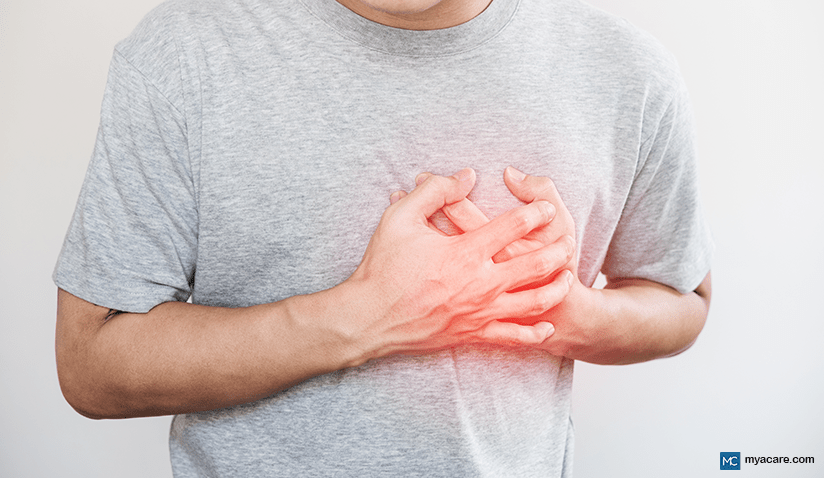
WHAT IS ROEMHELD SYNDROME?
Between the decades of 1910 and 1920, Dr. Ludwig Roemheld studied the phenomenon in which patients suffering from digestive problems and no detectable heart issues would experience cardiac symptoms.

PIRIFORMIS SYNDROME & HERNIATED DISC: SIMILARITIES AND DIFFERENCES
Piriformis syndrome and herniated discs are painful conditions of the back. Both can cause sciatica. Sciatica is a type of pain that affects your lower back and legs. It occurs due to irritated or compressed sciatic nerve. The sciatic nerve travels down the back to the legs.
- Healthcare Provider
Specialties
Become Our Partner!
For medical travellers, for medical procedures.

- [email protected]
- Get a FREE quote
Medical Treatment in Germany | Medical Tourism in Germany

With an excellent reputation for the quality of its healthcare system, the hospitals of Germany treat 250 thousand patients and receive more than 1.2 billion Euros from medical tourism every year. The majority of the medical travelers are usually from Russia, Romania, France, Bulgaria, UAE, Saudi Arabia, and Kuwait.
German healthcare has established its name as one of the best in Europe and worldwide and that’s why the country welcomes more and more medical travelers every year.
Did you know, that Germany is known as the ‘Hospital of Europe’ ? It is because the German healthcare system is a dual public-private system that dates back to the 1880s which makes it the oldest healthcare system not only in Europe but in the world.
Where does Germany rank in healthcare?
Germany ranks second after Switzerland in the world’s rating of healthcare costs in proportion to GDP.
The country ranks 36th out of 46 destinations in the world medical tourism index.
Germany ranks 12th globally for services, facilities, and destination environment categories.
Why do people go to Germany for medical treatment?
The major reason why people prefer Germany is because of improved healthcare facilities, advanced results for treatment, and strict ethical standards.
Primary reasons why people visit Germany for medical treatment:
Best Healthcare Standards: German healthcare standards are popular worldwide and every treatment is carried out strictly according to international protocols. Only the best quality drugs produced for the European countries are used in the clinics and hospitals of Germany.
Latest and Innovative Methods: There are numerous university hospitals in Germany that are involved in research activities. The majority of innovations are quickly implemented into the medical practice. New and innovative methods are introduced easily to provide high-quality medical care. There are several medical achievements from other countries that are timely implemented in the hospitals of Germany.
High-quality Medical Facilities: Almost all hospitals in Germany are equipped with high-tech imaging technology such as 3D ultrasound and MRI. Specialized clinics have state-of-the-art equipment that will assure the patients that they will get the most modern treatments. For oncology treatment, patients can find surgical robots, heart catheters, and targeted radiation therapies in German clinics.
Qualified Doctors: German medical professionals undergo a strict training process before they can practice their profession. The best and most skilled specialists from all over the world come to Germany to practice in reputable hospitals and clinics. The qualification of German doctors is much higher in most other countries. Almost all German doctors speak fluent English which language barrier is not an issue in the country for foreign patients. According to the World Health Organization, Germany has an average of 380 physicians per 100,000 inhabitants which is higher than the USA and Canada.
Reputed Hospitals: German hospitals have strict laws to protect patients’ safety. Proper hygiene maintenance, transparency in treatment, follow-up care, and state-of-the-art equipment for treatment are necessary for hospitals. Patients can undergo treatment in large university hospitals, clinics, and small specialized praxis because they have an excellent reputation worldwide. According to German law, the hospitals in Germany should mandatorily undergo quality surveillance programs, especially under government supervision. This includes certifications and accreditations with the German Institute of Standardization like DIN, TEMOS, and KTQ-GmBH.
Quick Access to Avail Treatment: The best thing about coming to Germany as a medical tourist is they can easily avail of medical treatments without waiting in a long queue. The waiting time is considerably less in the German healthcare system as compared to other nations. Medical travelers get quality treatment as early as possible and save their time. Less waiting time in a foreign country also helps the patients to maintain their budget for their medical trip.
Cost: Every medical traveler has two concerns before traveling abroad for medical treatment: treatment cost and access to treatments that are not available in their home country. Compared to other industrialized nations especially the USA, the cost of medical care in Germany is significantly low. A medical tourist can save up to 50% by receiving treatment in Germany instead of the United States. The reduced cost and international reputation for high-quality care make Germany one of the preferred destinations for medical tourism.
Home to Rehabilitation Centers & Wellness Resorts: There are numerous spas, health and wellness resorts, and rehabilitation centers in the country that have been offering a full range of treatments for many years. Millions of tourists come to Germany every year to visit therapeutic baths, health spas, and wellness centers. The rehabilitation system in the country is highly developed and proper procedure is followed for complete recovery. Germany is also awarded for its best rehab facility because the medical staff is dedicated to providing proper treatment so that the patients can achieve their natural health.
Tourist Attractions: Germany is a beautiful vacation destination to relieve post-treatment stress. Natural beauty, history, and culture best describe the essence of the country. There are several amazing attractions in Germany to make your medical trip stress-free and beautiful. Berlin's Brandenburg Gate, Cologne Cathedral (Kölner Dom), The Black Forest, Bamberg & the Bürgerstadtand, and Miniatur Wunderland are some of the beautiful attractions to drag anyone’s eyeball.
What type of healthcare system does Germany have?
The healthcare system of Germany is one of the best healthcare systems in the world. Germany has a universal multi-payer healthcare system that surrounds both statutory health insurance for people with fewer earnings and private health insurance for people who earn more and choose to purchase their own. Health insurance is mandatory in Germany.
A majority of the population in the country is enrolled in statutory health insurance, which involves in-patient, out-patient, mental health, and prescribed medicines coverage. All public health insurance providers in Germany charge a basic premium of 14.6% of gross income and a supplemental charge of an average of 0.9% of your gross income, to a maximum monthly income of €4,425. If your earnings are more than €4,425, you will not pay a higher insurance premium.
What are the popular medical treatments in Germany for foreigners?
Orthopedic and Joint Replacement
Neurosurgery
Fertility Treatment
Ophthalmology
Cardiac surgery
Obesity treatment
Kidney ailments
Is Germany a good place for cancer treatment?
Germany is among the renowned destinations in the world for advanced cancer treatments. Patients from every corner of the world visit the country for cancer cures because of ultramodern hospitals and quality standards.
The country has more than 43 centers for oncology treatments. The average recovery rate of cancer for male patients is 61% and for female patients is 66% which is relatively very high compared to other countries. Approximately 300 types of malignant tumors are treated here successfully. The specialists only use modern methods and prescribe targeted drug therapies for the treatment.
The prices of the oncology treatments are not the lowest but cheaper than prices for the same procedure in the US.
Cost Comparison of Cancer Treatments Between Germany and the US
The exact cost of medical treatment depends on the chosen hospital, the age of the patient, and the treatment method. The estimated cost of treatments is as follows:
Are medical treatments expensive in Germany?
Germany offers some of the most advanced healthcare treatments in Europe and that’s why many people assume that medical facilities are expensive in the country for medical travelers. Germany is not the cheapest country to receive medical treatments but also it is definitely not the most expensive country. When compared to other nations with similar standards of care, Germany provides treatment at affordable prices.
Medical tourists get a chance to receive high-quality treatments in the country from the most experienced doctors in some of the best hospitals without having any serious consequences.
How to choose a hospital in Germany?
If you want to visit Germany to receive medical treatment, it is essential to choose the right hospital in the country to get high-quality services.
Below are some of the factors to consider before choosing a hospital in Germany:
Specialty: It is recommended to choose a hospital that specializes in the procedure of surgery you seek. There is no doubt that all German hospitals provide high-quality standards but it is beneficial to choose a single specialty hospital as it has more advanced facilities for focused treatment. It is better to do thorough research before entering a hospital can prevent surprises.
Cost: It is vital to check the cost of the treatment provided by the hospital before finalizing it. There are approximately 3000 hospitals in Germany, so if one hospital’s price doesn’t suit your budget, you can choose any other hospital. German hospital’s goal is to provide timely and effective treatments to patients which can save patients money by spending less time in the hospital.
Quality of the Services: Germany is very popular for high-quality medical services and facilities. But, just to be on the safe side, it is better to gain some information about the quality of the service of any particular hospital. You can also get recommendations if someone from your known stayed in that hospital, or you can check out the online patient reviews which are available on the hospital’s website.
Personalized Care: German hospitals are focused on giving the best quality of medical care. But, still, you need to confirm what kind of care you will be getting at the hospital. Patients from foreign land always want to stay in a hospital that respects their culture, and background and provide personalized care. A little bit of research is necessary for a worry-free and low-stress experience.
How do I get a medical treatment visa for Germany?
Everything depends on your nationality and duration of stay in Germany, whether you need a visa or not. A medical traveler can get a Germany visa for medical treatment either for up to three months stays or for stays longer than that.
For three months stay
A Schengen Medical visa to Germany is required if you stay in the country for medical treatment that takes less than three months.
If you are from one of the third-world countries that come under the Schengen Area , then there is no need for such a visa.
For more than three months stay
If you are coming to Germany for a medical treatment that requires a stay of more than 3 months, you need to obtain a National Medical visa even if you are from a country that comes under Schengen Area.
You need to follow the below-mentioned steps to complete the application process to obtain a German medical treatment visa:
Find where you need to apply for the visa: German Embassy in your home country, the German consulate, and an outsourced visa center
Gather all the required documents for a hassle-free process
Make an appointment online or in-person
Attend the interview with the required documents
You need to wait for your file to be processed
What are the requirements needed to travel to Germany?
Following are the essential documents required to obtain a German visa for medical treatment:
A complete application form
Two passport-size photographs
A valid passport with a validity of three months beyond the planned date of return to your home country
An A4 size copy of your passport’s data page
A travel health insurance with a minimum coverage of €30,000
Proof of financial status, accommodation, and civil status
Flight reservations
Generally, it takes 10-15 days to process a visa application for Germany. Sometimes delays happen when the embassy receives a lot of applications. In case of any health emergency, the application may be processed more quickly than normal.
Is it safe to travel to Germany for medical treatment?
Germany is generally a safe destination for medical treatment. There is a very rare violent crime happening in the country. But, it is recommended to avoid traveling the country for medical treatment during big events such as Oktoberfest or major sports events because at that time Germany is very crowded and not that much safer.
Best Hospitals in Germany
Solingen Municipal Hospital, Solingen : It is a multi-specialty hospital operating since 1863 and also got a certificate of the ‘best cancer treatment clinic in Germany’ from the German Cancer Society.
University Hospital Dusseldorf : It is one of the best cardiac centers in Germany and has treated more than 50,000 heart operations since 1938.
Helios Specialist Clinic Vogelsang : Founded in 1899, the hospital specializes in thoracic surgery, urology, and rheumatology.
Park Clinic Weissensee, Berlin : It is one of the best hospitals accreditated with various certifications such as Stroke Unit (stroke station), DKG - certification for Breast Center, & Endoprosthetics Center for Maximum Care (EPZmax).
Freiburg University Hospital, Freiburg : It is one of the largest hospitals in Europe and was awarded the title of the "Leading Cancer Center in Germany."
Best Doctors in Germany
Prof. Dr. Anca-Ligia Grosu : A leading Radiation Oncologist with more than 25 years of experience.
Prof. Dr. Christoph Bode : A renowned Interventional Cardiologist with 34+ years of experience.
Prof. Dr. Dimos Baltas : A well-known Radiation Oncologist with 32 years of experience.
Prof. Dr. Friedhelm Beyersdorf : He is among the best Interventional Cardiologists having 26+ years of experience.
Prof. Dr. Wolf Alexander Lagreze : A well-known Ophthalmologist practicing for more than 29 years.
To Conclude
Planning and organizing medical travel to a foreign land can be stressful and confusing. That’s why it is better to gather as much information as possible for a successful medical trip. Germany is home to highly-trained doctors and well-established hospitals that will make your visit worth it.
Frequently Asked Questions
What are the few top destinations in Germany for medical travel?
Some of the few top hotspots in Germany for medical tourism are Munich, Düsseldorf, Berlin, Frankfurt Rhine-Main region, and Hamburg.
Do I need health insurance when traveling to Germany?
It is mandatory to have German travel insurance for travelers and visitors that covers your medical needs while in the country. This insurance has a minimum coverage of €30,000 and it should also be valid in other Schengen countries.
Can a tourist see a doctor in Germany?
You cannot see a doctor in Germany without first having health insurance. The medical practitioners will ask for upfront payments if a patient is uninsured. This requirement also applies to visitors to the country or non-German residents.
Do doctors speak English in German hospitals?
The majority of doctors in German hospitals speak English to accommodate international patients.
What are the benefits of undergoing surgery in Germany?
People prefer Germany for medical treatment because of better quality and good treatment results.
Get in Touch with Medical Experts

Namisha Khanduri is a creative content writer. She loves to share her thoughts and opinions with the world and her aim is to develop content that accurately reflects her ideas!

With over 12+ years of experience, Dr. Shruti Rastogi has expertise in managing patients suffering from various ailments. She contributes to improving public health literacy helping people make informed decisions about their well-being. Her keen eye for detail and strong medical knowledge help maintain the highest healthcare information standards.
Our Happy Patients
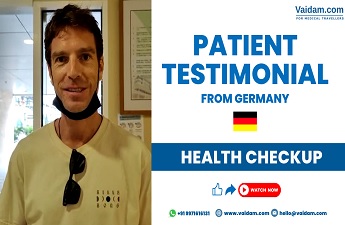
Patient from Germany receives full body health check-up in Thailand | Vaidam
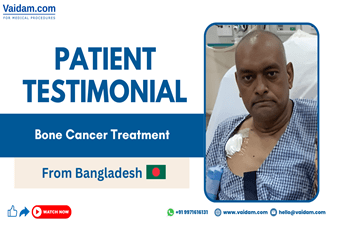
Bangladeshi Patient Suffering from Bone Cancer Successfully Treated in India
Recent blogs.
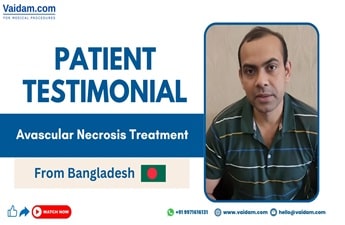
Bangladeshi Patient Gets Successfully Treated for Hip Pain in India
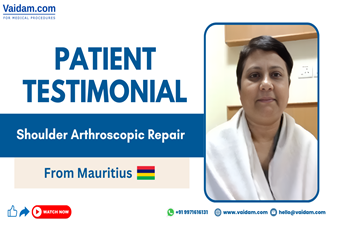
Mauritius Patient Overcomes Shoulder and Neck Pain with Shoulder Arthroscopic Repair in India

Patient from Kyrgyzstan Underwent Successful Rhinoplasty in Thailand

Patient from Fiji Received Successful Arthritis Treatment in India
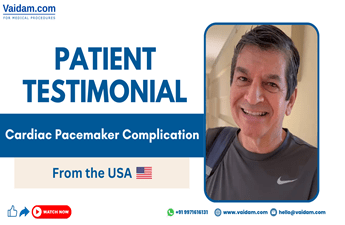
Patient from the USA Received Consultation in Thailand for Pacemaker Malfunction
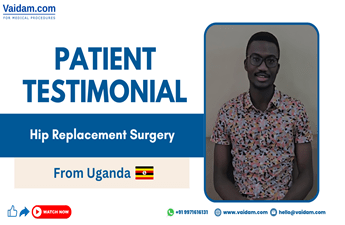
Patient from Uganda Received Successful Hip Replacement Surgery in India

Patient from Nigeria Walks Pain-Free Again After Hip Replacement Surgery in India
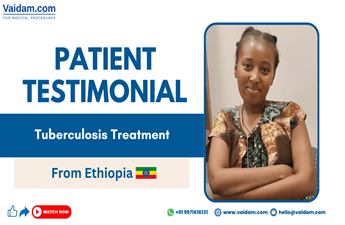
Patient from Ethiopia Suffering from Tuberculosis Gets Successfully Treated in India
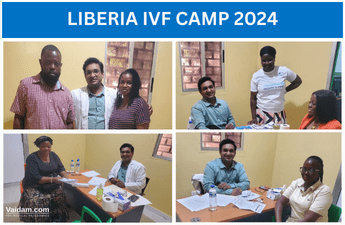
Successful IVF Camp in Liberia with Dr. Ankush Raut from Apollo Fertility, India
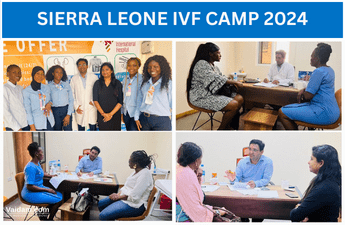
Successful IVF Camp with Apollo Fertility Center, India, in Sierra Leone

Exploring Dubai as a Local: How Can You Make Your Medical Tourism Journey Easy?

Living Like a Local: How to Make Your Thai Journey Easier During Your Treatment
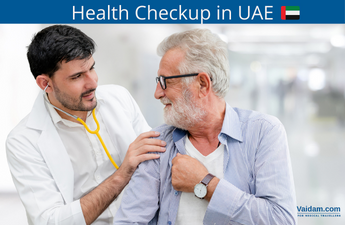
Health Checkup in UAE

Medical Tourism in Singapore

Health Check up in Thailand

Medical Treatment in UAE | Medical Tourism in UAE
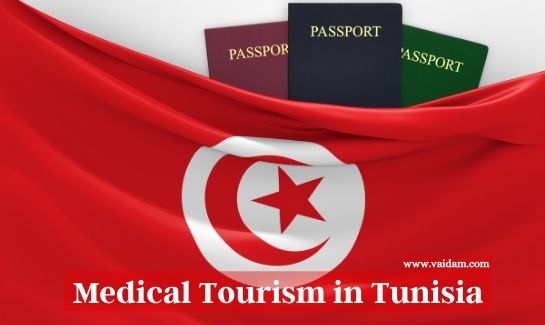
Medical Tourism in Tunisia

Medical Tourism in South Africa
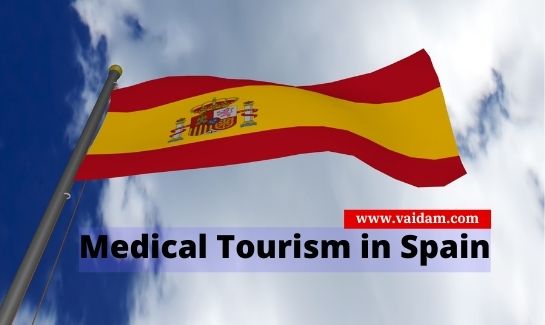
Medical Tourism in Spain
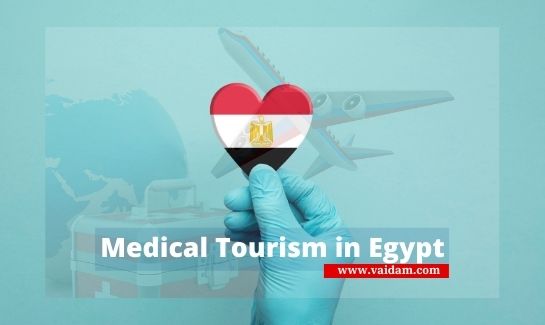
Medical Tourism in Egypt
Vaidam - a complete solution.

Vaidam Featured in

Why Vaidam?
25,000+ patients from 105+ countries have trusted vaidam.

NABH Certified Healthcare Discovery Platform
Vaidam is NABH certified healthcare discovery platform that will connect you to top-notch medical experts, hospitals, wellness options, and trusted travel partners to help identify and make the right healthcare choices.

Researched & Personalized Treatment Plan - Under One Roof
You can search for the best hospitals, read about them, view photographs of the facilities at the hospitals and the places at which the hospitals are located, and check the cost of treatment.

Quality Treatment Within Your Budget
As soon as you post an enquiry, the patient relation team will collect details from you, share them with the doctors and hospitals on Vaidam's panel, and get a personalized treatment plan. We research to get quality treatment within your budget.

Treatment to Travel
Vaidam concierge assists patients, to get medical Visa, the best airline fares and arrangements for your stay. Our concierge also helps you with daily travel, language, and food concerns. Vaidam does everything to be your perfect host. All of Vaidam’s services are free of cost to patients.

International Reach
Vaidam Health has network in 15+ countries, which includes India, Turkey, UAE, Germany, South Korea, Thailand, Malaysia, Spain.
Note: Vaidam Health does not provide medical advice, diagnosis or treatment. The services and information offered on www.vaidam.com are intended solely for informational purposes and cannot replace the professional consultation or treatment by a physician. Vaidam Health discourages copying, cloning of its webpages and its content and it will follow the legal procedures to protect its intellectual property
- Our Services
- Terms of Use
- Privacy Policy
- Editorial Policy

Thank you. We will contact you soon.
To overcome restrictions due to Corona Virus, we are offering Paid Tele/Video Consultation from top doctors. Let us know if you are interested & we will contact you.

Vaidam is accredited by NABH, India's highest accreditation for healthcare service providers
![germany medical tourism AWW Media [US]](https://img-s-msn-com.akamaized.net/tenant/amp/entityid/BB1kdTYO.img)
AWW Media [US]
16 Destinations That Have Become Fantastic Hubs for Medical Tourism
Posted: June 1, 2024 | Last updated: June 1, 2024
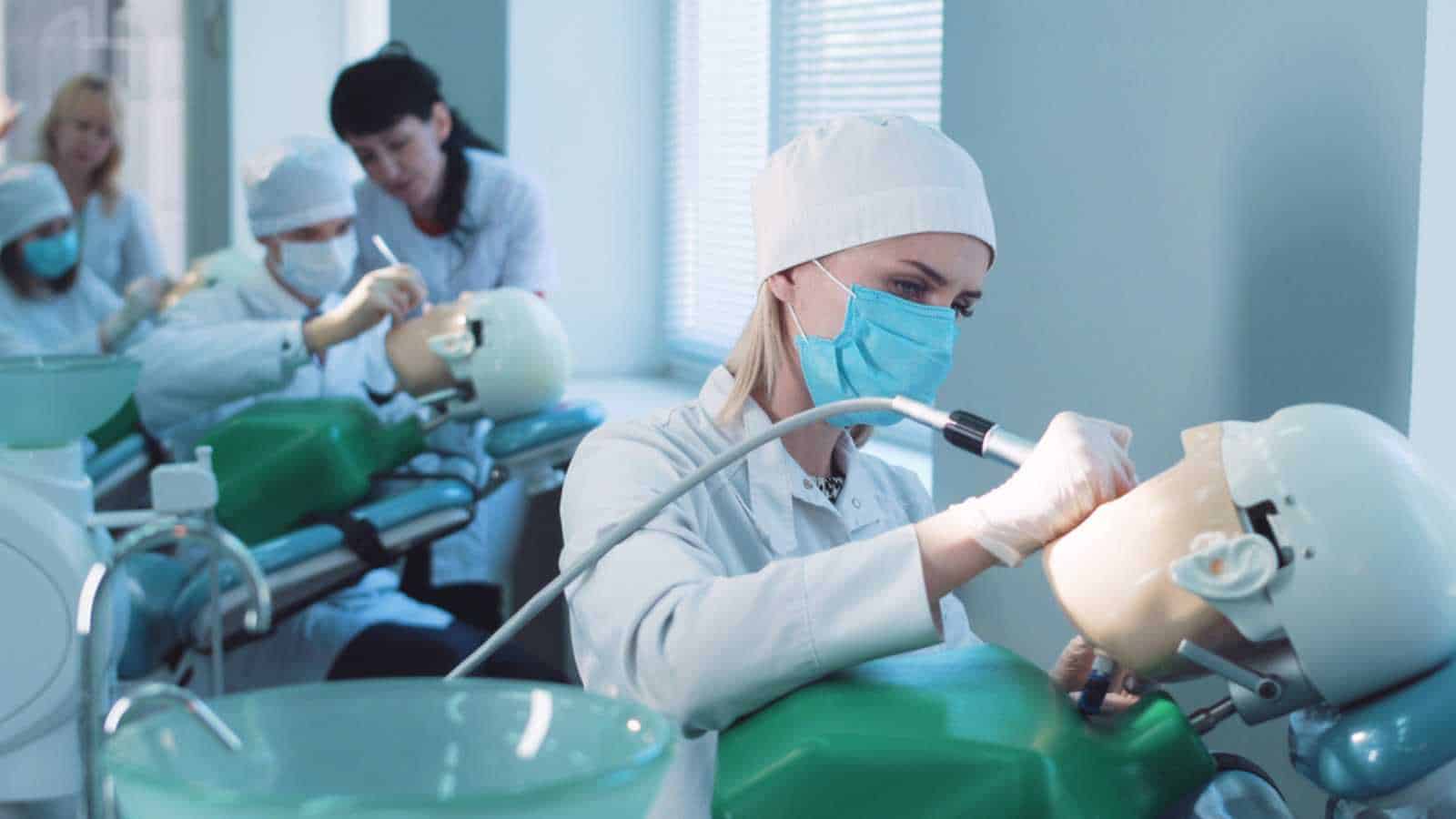
Medical tourism has surged in popularity, with numerous destinations emerging as premier hubs for quality healthcare services at competitive prices. Countries like Thailand, India, and Mexico are leading the charge, offering advanced medical treatments and state-of-the-art facilities. Patients worldwide are drawn to these destinations, seeking affordable healthcare, expert medical professionals, and the charm of cultural experiences. These medical tourism hotspots provide exceptional care, whether cosmetic surgeries or complex procedures.

Canada claimed the top spot in the 2020 Medical Tourism Index thanks to its strong tourism industry that draws over 14 million Americans annually. Its close proximity to the US allows many to avoid long wait times and high healthcare costs. Renowned for its high-quality, specialized medical treatments and world-class healthcare facilities, Canada excels particularly in orthopedic procedures and complex heart surgeries. It has ranked first for Destination Environment.
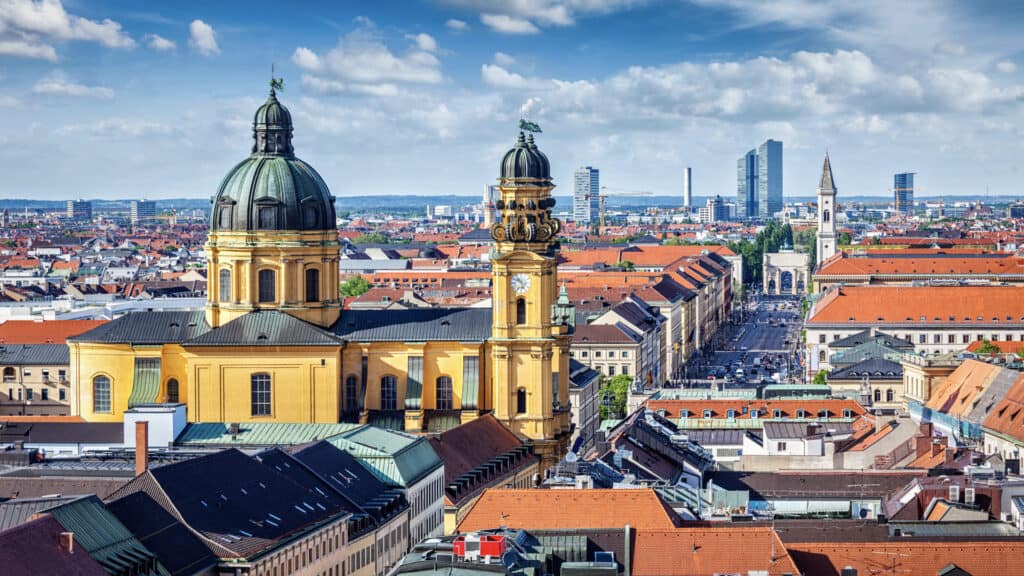
Germany is a global oncology leader, boasting advanced treatment centers and top cancer experts. Patients from around the world flock to Germany for cancer treatment, often finding that the same level of care is either unaffordable or inaccessible in their home countries. Germany’s reputation for cutting-edge oncology treatments and its concentration of renowned specialists make it a prime destination for effective and advanced cancer care.

Before the pandemic, Mexico treated one million Americans annually, attracted by its low prices and high-quality care. Patients Beyond Borders reports that medical treatments in Mexico can offer savings of 40% to 70% compared to the US. Popular services include dental care, aesthetics, cosmetic surgery, weight loss, and pharmaceutical travel. For instance, four dental implants with a fixed acrylic bridge cost $12,200 in Mexico, whereas the same procedure costs $21,500 in the US.
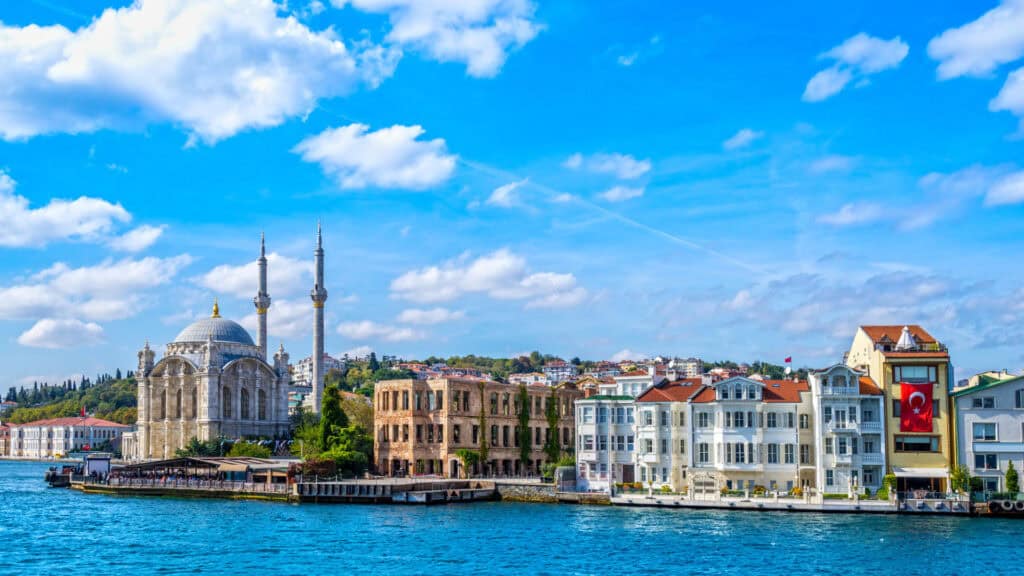
Turkey, situated at the intersection of Europe, Asia, and the Middle East, has a burgeoning medical tourism industry. The country offers top-tier health treatment centers, spas, dentists, and cosmetic surgeons. It is particularly renowned for its eye health specialists, with ocular procedures costing around $3,000—much cheaper than in Western countries. As Turkey’s economy grows and it strengthens ties with the EU, its medical tourism sector is worth watching. Additionally, Turkey attracts investors from the Middle East and beyond due to its pro-business stance and excellent global connectivity through Istanbul.

5. Costa Rica
Costa Rica, known for its serene landscapes, rainforests, and pristine coastlines, is a top medical travel destination. The country excels in specialized orthopedics, gynecology, cosmetic surgery, and dentistry procedures. Offering high-quality healthcare at nearly half the cost of the US, Costa Rica ranks higher in health system efficiency. Its blend of affordable, advanced medical services and stunning natural beauty makes it an attractive choice for medical tourists.
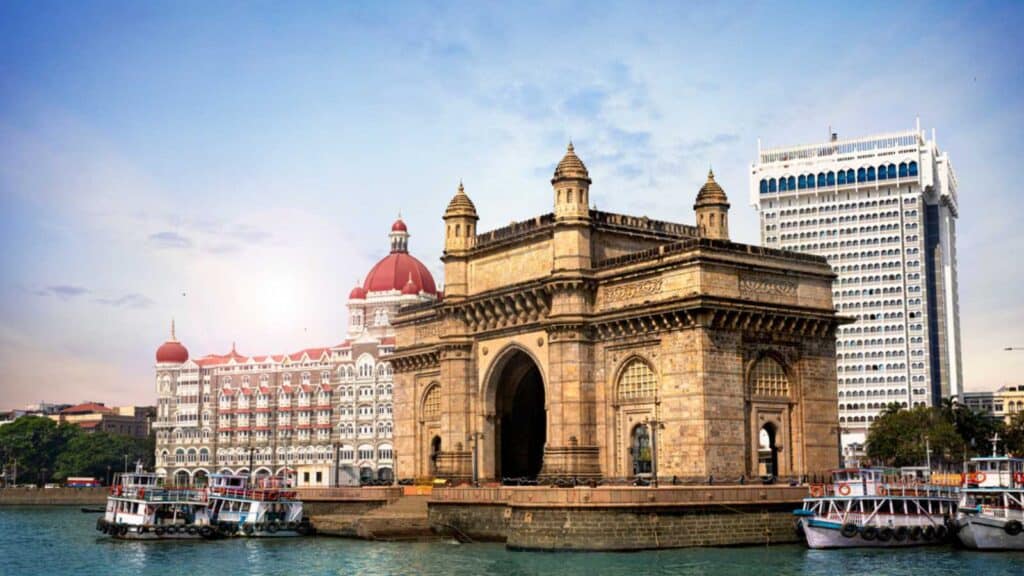
India’s medical tourism industry, valued at $9 billion, attracts two million overseas patients annually. The Indian government is easing travel restrictions for many countries, though US citizens still require a $100 visa. Known for their advanced medical services, cities like Chennai and Noida serve many foreign patients, with English commonly spoken and translators available. Medical costs in India are significantly lower, with treatments like bone marrow transplants, eye surgery, and hip replacements costing up to one-tenth of Western prices. Cardiac bypass surgery, for instance, can cost under $10,000 compared to over $100,000 in the West.

Japan ranks high in medical tourism, securing second place in both the Medical Tourism Industry and Quality of Facilities and Services categories and fifth in the Destination Environment dimension. Renowned for its advanced healthcare system, Japan excels in technology and medicine, providing exceptional care to both citizens and foreign tourists, particularly from mainland China. The low cost of care further attracts medical tourists globally. Japan is especially noted for its expertise in minimally invasive medicine and tech-driven plastic and orthopedic surgery procedures, making it a leading destination for high-quality, affordable medical treatments.
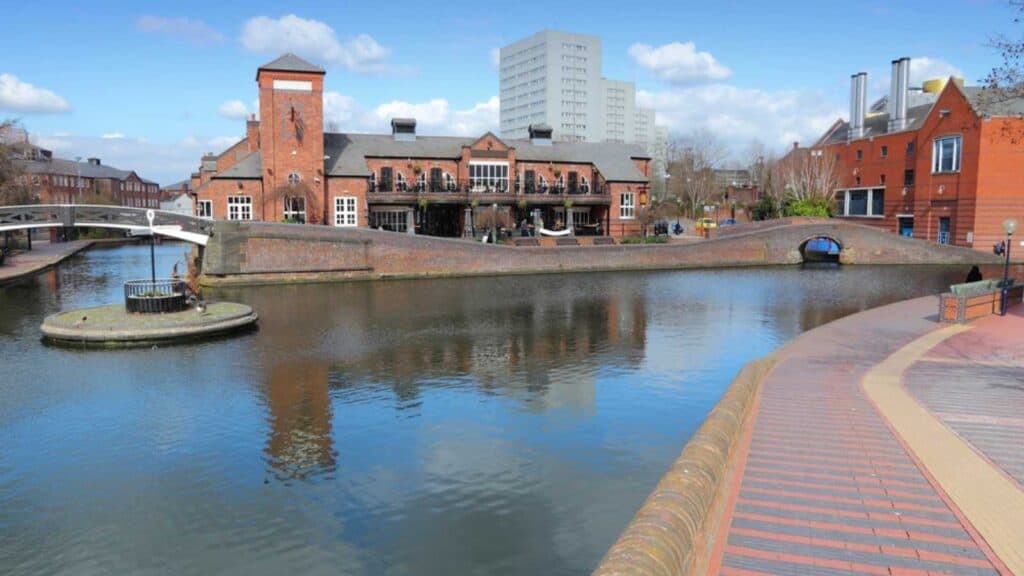
8. United Kingdom
The UK hosts esteemed medical institutions such as the London Orthopedic Clinic, Birmingham Children’s Hospital, and the Cambridge Complex Orthopedic Trauma Center, all known for delivering top-tier healthcare services. Additionally, the UK is a prime tourist destination, drawing over 31 million international visitors annually, attracted by its rich cultural heritage. The United Kingdom excels in the Destination Environment category, ranking third out of 46 destinations, mainly due to its appeal as a cultural and historical hub. This combination of high-quality medical care and rich tourism makes the UK a favored choice for medical tourists.

9. Singapore
Singapore boasts one of the world’s most advanced hospital systems, making it a prime medical tourism hub for Asians and Westerners. Famous for cancer treatment, particularly at Gleneagles Hospital, Singapore is ranked by the WHO as Asia’s best healthcare system. Despite higher costs than places like Thailand, Singapore offers unparalleled quality of life and healthcare. Its efficient healthcare system keeps costs relatively low through personal responsibility. Notably, a US grocery chain covers hospital and travel costs for employees getting hip and knee replacements in Singapore.
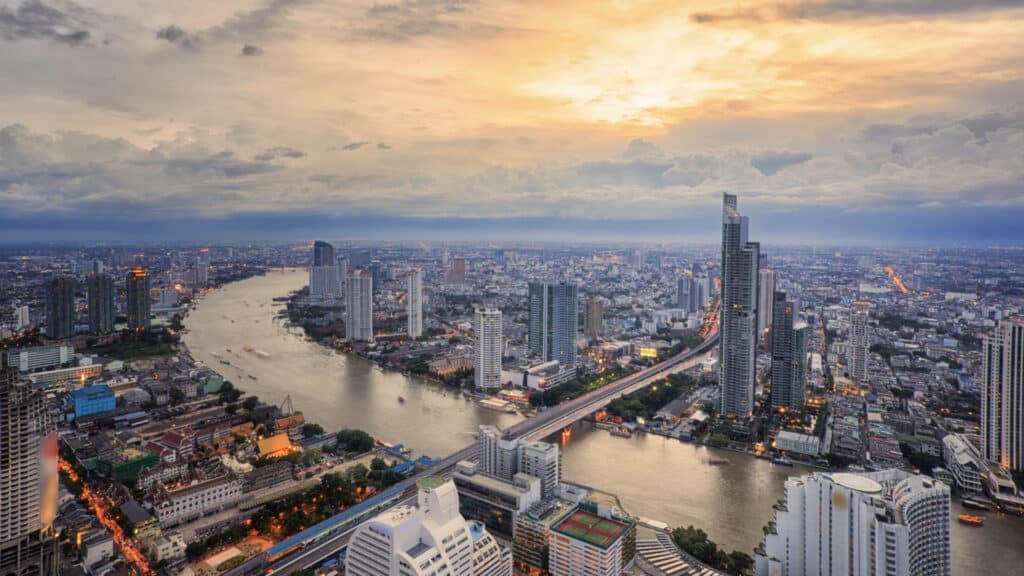
10. Thailand
Thailand, renowned for its stunning landscapes, beautiful beaches, and rich culture, is a top global tourism destination. While famous for sex-change surgeries, Thailand offers much more, including world-class medical care. Bumrungrad International Hospital, the first in Asia accredited by the US-based Joint Commission International (JCI), provides various medical procedures. Treatment costs in Thailand can be 50% to 75% lower than in the US. For example, a valve replacement with bypass surgery costs $19,000 in Thailand, compared to $81,000 in the US.
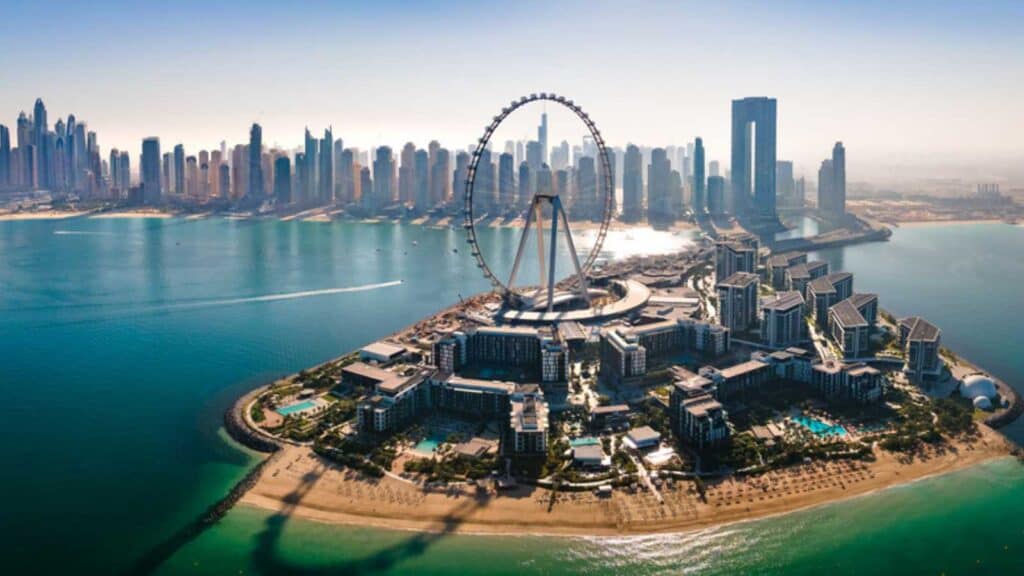
Dubai, famous for its ultramodern architecture, high-rise buildings, and luxury shopping, welcomes over 10 million tourists annually. With a population of 9.4 million, Dubai offers a friendly environment that enhances the travel experience for international patients seeking world-class care. Ranked the top medical destination in the Arab region by the Medical Tourism Index, Dubai has renowned hospitals like Mediclinic City Hospital and Dr. Sulaiman Al-Habib Hospital. The city attracts medical tourists primarily from Asia, the Arab and Gulf countries, and Europe for complex cosmetic, dental, and fertility treatments.

12. Czech Republic
The Czech Republic offers excellent healthcare in the heart of the European Union, providing high-level services at better value than Western Europe. Prague, a haven for retirees and entrepreneurs, is gaining a reputation for top-quality medical services like teeth whitening, fertility treatments, and cosmetic surgeries. Brits can save up to 60% on procedures, with breast enlargement costing £2,300 and nose reshaping £2,400, including clinic stays. Prague is one of Europe’s best-value cities, with low taxes and numerous opportunities for business and lifestyle beyond medical care.

13. Pakistan
Pakistan’s medical tourism industry is rapidly growing, making it a top destination in Asia, particularly for weight loss surgery. Besides this, Pakistan excels in in vitro fertilization, dental care, cardiac surgeries, and cosmetic surgeries. Despite ongoing infrastructure development, Pakistan boasts state-of-the-art clinics and English-speaking medical staff, ensuring high-quality care. The country offers some of the most affordable medical treatments and convenient accommodations for medical tourists, making it an attractive choice. This combination of advanced medical services and affordability continues to draw international patients to Pakistan.
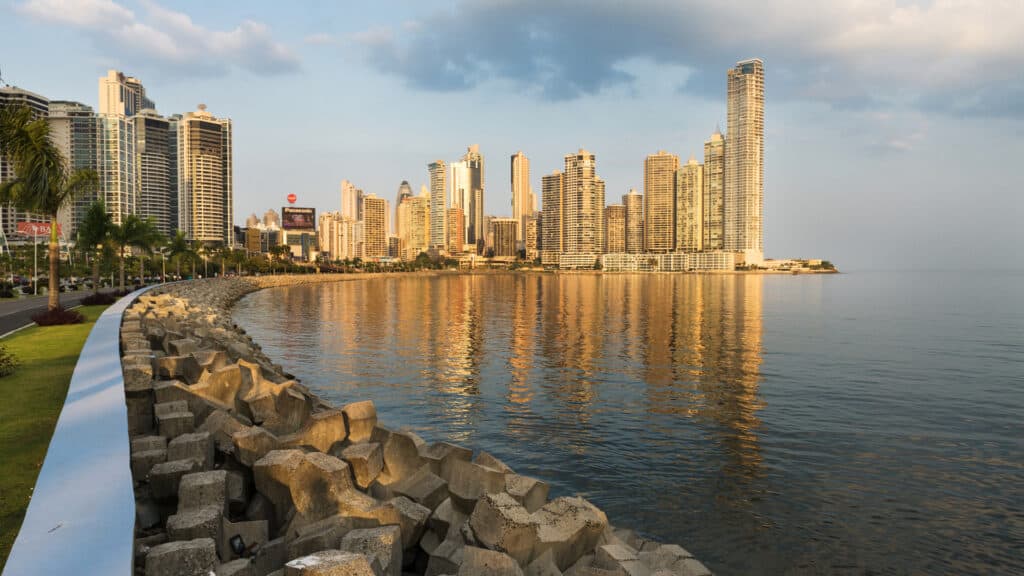
Panama is a premier destination for retirement, second residences, and medical tourism. Its private hospitals provide excellent care and are often affiliated with major North American hospitals. International travelers can obtain affordable insurance plans covering Panama and other locations. The predominantly English-speaking medical staff and the country’s well-developed infrastructure make it convenient. Additionally, Panama boasts one of the world’s freest economies, allowing most visitors to stay visa-free for up to 180 days annually, enhancing its attraction as a top spot for quality medical care and easy living.

Brazil has emerged as the global leader in plastic surgery medical tourism, driven by its image-conscious culture. While Mexico is well-known for medical care in the Americas, Brazil excels in advanced medical practices. The country prioritizes aesthetics, boasting the highest number of cosmetic surgeons worldwide, with procedures conducted in hospitals by highly trained doctors. Initially focused on elective procedures, Brazil now has over 70 Joint Commission International (JCI)-accredited hospitals, including the pioneering Hospital Israelita Albert Einstein in Sao Paulo. Beyond cosmetic surgeries like the Brazilian butt lift, Brazil excels in orthopedic surgeries, cardiovascular treatments, and dental work, offering procedures at up to 60% less than Western costs.
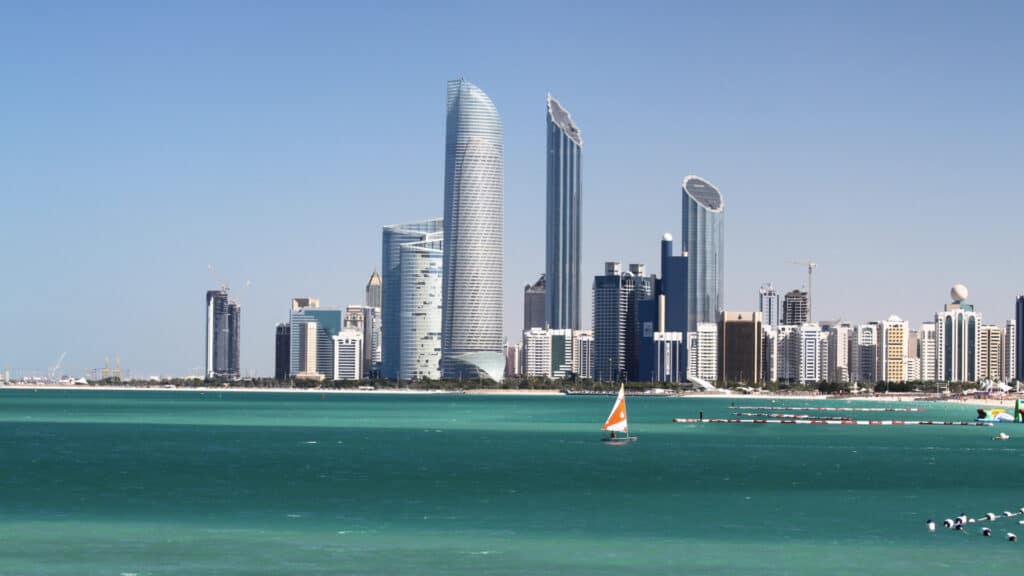
16. Abu Dhabi
Abu Dhabi, the capital and largest emirate of the UAE, has developed a strong medical tourism platform poised to lead the region. In 2019, it launched the Abu Dhabi Medical Tourism e-portal, offering international patients comprehensive information on medical services and healthcare facilities. The e-portal also provides access to medical tourism insurance, hotel bookings, transportation, and recreational activities. Abu Dhabi’s healthcare facilities adhere to strict quality standards set by the Department of Health, ensuring top-tier care. Collaborations with Global Healthcare Accreditation and the Medical Tourism Association have significantly enhanced Abu Dhabi’s appeal.

Great Countries For Medical Tourism
Destinations like Thailand, India, Singapore, and Abu Dhabi have emerged as premier hubs for medical tourism, offering top-quality care at affordable prices. With advanced facilities, skilled professionals, and appealing tourism opportunities, these countries continue to attract patients globally, reshaping the landscape of international healthcare.

16 Picture Perfect Destinations in Europe To Put on Your Bucket List
Imagine a place where every corner is a postcard-perfect scene, where fun and beauty blend to create unforgettable memories. Picture-perfect destinations offer more than just stunning views; they invite you to immerse yourself in a world of adventure, culture, and joy. Whether you’re wandering through charming cobblestone streets, lounging on pristine beaches, or exploring vibrant marketplaces, these locations promise endless fun and excitement.
16 Picture Perfect Destinations in Europe To Put on Your Bucket List

11 of the Happiest Countries in the World Where Residents do not Want to Leave
When faced with many unknowns, searching for happiness becomes a universal goal. The pursuit of happiness has received much attention in recent years as nations work to increase their populations’ standard of living. Economic prosperity, social welfare, long life expectancy, and personal autonomy all play a role in the level of contentment in a country as a whole. This blog will examine the eleven countries deemed the happiest in the world, looking closely at the factors that set them apart and contribute to their citizens’ high levels of happiness.
More for You
Fauci Blames ‘Political Performances’ Like Marjorie Taylor Greene’s For Rise In Death Threats
50 Privacy Fence Ideas to Stylishly Seclude Your Outdoor Sanctuary
‘Heat dome’ settles over West Coast with 112F temps creating deadly conditions for 10m and sparking wildfire fears
Whoopi Goldberg Stages a 'Joyful Joyful' “Sister Act 2” Reunion on “The View ”for Film's 30th Anniversary (Exclusive)
Everything To Know About The Jeep Death Wobble - What Causes It, Can It Be Fixed, And More
The 1-Ingredient Upgrade for Better Chocolate Cake (It Costs Zero Dollars)
White House says Biden would veto military construction-VA bill
CNBC Daily Open: Dow drops on weak manufacturing data, GameStop soars
An interior designer shares 10 things she would never have in her own living room
Any Dream Will Do | Donny Osmond | Joseph and the Amazing Technicolor Dreamcoat
What Is A Bobtail, And How Is It Different From A Semi Truck?
Secret Menu Items From Your Favorite Restaurants
New York Tosses Rep. Stefanik’s Trump Court Complaint in Bank Fraud Civil Suit
Carpenter Shares Brilliant Hack for Hanging Cabinets With Ease
America’s Most Powerful Pollster Has Some Doubts
Map shows states affected by recalled cucumbers potentially contaminated with salmonella
The best way to answer 'tell me about yourself,' says CEO who's done over 30,000 interviews
Here's How Long The Automatic Transmission In Your Car Will Probably Last
Angela Bassett's red carpet magic: Bold, regal, and ultra glamorous!
This Clever Marker Hack May Be The Key To Keeping Birds From Flying Into Your Windows
Privacy settings
Here you will find an overview of the types of cookies used on the website. You can set your consent for each category individually. Further information can be found in the privacy policy .
- Essential Cookies For the use of the website with all functions (e.g. user settings, watch lists, etc.)
- Statistics Statistics Cookies collect information anonymously. This information helps us to understand how our visitors use our website.
- Marketing In order to provide you with the best possible offer in cooperation with our partners, we use marketing tools. For example, in order to use our chatbot, you must activate this setting.
- External contents Required for viewing external media and third-party content. The provider may set cookies for its part. The respective data protection regulations of the provider apply.
- Inspiring Germany
- Cities & Culture
- Nature & Outdoor Activities
- Royal Palaces & Castles
- Experience & Enjoy
- Current highlights
- Sustainable travel
- Barrier-free travel
- Easy language
- Federal states
The German National Tourist Board
On behalf of the German federal government, the GNTB has been working internationally to promote Germany as a travel destination for more than 60 years. It communicates the diverse appeal of the country to a worldwide market, thereby promoting a strong and attractive brand – 'Destination Germany'.
The GNTB plays an important role in the promotion of Germany as a travel destination on the international market. Its activities include the development of new marketing strategies and concepts based on specific themes, events and attractions and also bringing together and optimising the diverse marketing activities of partners in the German travel industry. It also takes an active role in the form of far-ranging sales activities in new growth markets. In this respect, the GNTB relies on its close collaboration with the German travel industry, partners from commerce and trade associations.
Training and working at the GNTB
The German National Tourist Board (GNTB) is the central organisation for marketing Germany as a travel destination. We aim to communicate the beauty, diversity, romance and vibrancy of the country to people of all ages in Germany and abroad. Germany is currently one of the most popular international travel destinations. Below you can find detailed information about training, work placements and jobs at the GNTB.
Cooperation agreements and partners
The idea of public-private partnership, in other words combining private and public interests in both a conceptual and commercial sense, has been one of the GNTB's guiding principles from the outset.
Discover more
Standard Terms and Public Procurement
You would like to work with the German National Tourism Board promoting Germany as a travel destination on the international market.
Our Response to COVID-19 →
Destination Spotlight
Germany has designs on arab medical tourism patients.

A middle-aged man sporting a moustache, Bermuda shorts, white socks and sandals steps out of a blue Volkswagen and is waved inside. Sheik Abudulrahman al Mutaf looks more like the vacationing banker and marine biologist that he is until his wife, dressed in a black burqa, follows him out of the van.
For the past two decades, the couple from Qatar has been travelling to Elisee Clinic in Bad Godesberg, a town just south of Bonn that has earned a warm reputation among Arab patients seeking medical tourism services. To the sheik and his wife, accessing a high-level of medical treatment can be a status symbol of sorts, making a trip to Germany for other Middle Easterners like them status quo.
As many as 77,000 foreign patients from 178 countries visit Germany annually for medical care, the government reports. Another 115,000 arrive for ambulatory care. Medical tourism Arab patients are particularly fond of German healthcare including thousands who hail from the United Arab Emirates, Saudi Arabia, Kuwait, Qatar and Oman.
Medical tourism to Germany drives $1.35 billion annually into Deutschland coffers. For good reasons, competition for Arab patients has become as fierce as Bundesliga fussbol, enticing more regions – from Bavaria and Hessen to North Rhine Westphalia — to join the fray and potential economic boon.
Some German hospitals – there are some 200 including 30 university-based – have already adapted an international focus that caters to patients from Gulf Cooperative Council nations. Translation services and support, separate prayer rooms and accommodations for travelling relatives, friends and medical personal have made looking after Arabs a prime consideration among healthcare providers who seek to capitalize on the medical tourism patient experience.
Ounce of Prevention
In turn, wealthy Arabs, who would traditionally take advantage of well-connected flights to Germany to avoid the blistering summer heat at home, are now scheduling vacations abroad around medical treatment, not only for oncology, neurosurgery and cardiology, but preventative care as well.
Population growth coupled with precarious lifestyle habits have put increasing pressure on Arab states to deliver treatments to nationals and expatriates for chronic disease from a healthcare infrastructure that is already committed to attracting more patients from over- seas. Statistic bear out the angst among doctors and government officials in the Middle East and North Africa who fear healthcare expenditures at home will spiral out of control and force more Arabs overseas for medical care unless the alarming trend is addressed.
Consider that Saudi Arabia — the second most-populous GCC nation and owner of one of the highest rates of genetic disease in the world — is predicted to grow from 28.4 million to 35.4 million by 2025. What’s more, obesity rates in the UAE are twice that of the world average, and almost 20 percent of the nation’s residents suffer from diabetes and are prone to heart attacks a decade earlier than their counterparts in the United States and Europe.
In the meantime, despite government attempts to curb outbound travel for health services, patients from the UAE and across the Gulf region continue to seek treatments in Europe and the United States, where local governments are appropriating millions of dollars to reinvigorate existing facilities and construct venues to make medical tourism an even more appealing proposition.
Conferences, including the World Medical Tourism & Global Healthcare Congress, which played host to the Arab Health & Wellness Forum, in Orlando, Fla., have shaped agendas to in support.
Heart of Europe
Hoteliers in Germany have also been happy to oblige this emerging Arab population now synonymous for habitual smoking and obesity by packaging stays with preventative care and lifestyle modification through local medical clinics and doctors. Rocco Forte claims up to 80 percent of its Middle Eastern guests in Germany are more than likely receiving medical treatment.
Some, most probably, through programs administered at each of three hotels, all connected to a local surgeon who has an expertise in diabetes, renal and coronary heart disease. Related affiliations are also common at Lans Medicum, a medical center in Hamburg that partners with the Fairmont Hotel Vier Jahereszeiten to examine guests for early stages of cancer, cardiovascular disease and metabolic illness.
Health vices including a new-found appetite for fast-foot have pushed non-communicable chronic disease into the health consciousness of Gulf state Arabs. Now, when these Arab patients consider help for their complications in Germany, they can think about lodging that offers Arabic-speaking concierge services, copies of the Holy Qur’an in each room, restaurants that remain open for extended hours during Ramadan and chefs who prepare authentic culinary specialties and halal meals.
History recalls that high-end shopping and preserved landscapes have combined to make Germany a natural treat at any time of year. Nestled in the heart of Europe, Germany is easily accessible to most any visitor across the globe. But, the marriage between medicine and tourism has pushed Germany – 5.8 percent of the country’s population is Muslim — ahead of even France and Britain as the most-visited European destination among Arabs.
Middle Eastern guests spent 1.5 million nights in German hotels during 2013, and DZT, the nation’s tourism board, expects that figure to climb to 2 million by 2020. Compared to their European counterparts, these guests also tend to stay a bit longer – sometimes weeks at a time. UAE residents, alone, are said to spend up to $2 billion annually on medical tourism.
Made in Germany
The business of medicine is not lost on Germany, which spent approximately 314.9 billion euros on healthcare in 2013, an increase of 12.1 billion euros or 4 percent from 2012 and 11.3 percent of the gross domestic product. A focus on Arab patients is one approach to guarantee a steady stream of patients and a source of revenue for both the healthcare and travel sectors especially considering that revenues from medical tourism account for €1 billion annually.
For its advocacy, the government launched “Health – Made in Germany,” a website that offers an overview of the German healthcare industry. The multi-lingual internet portal is, in part, designed to help foreign patients identify appropriate hospitals, technology and health-related services that can be used to prepare for a stay when in Germany.
Complimentary regional approaches provide further affirmation. In Munich, where a stretch of Maximilianstrasse lures affluent shoppers and some 120,000 visitors each year from GCC nations, the city’s hotels pay homage to Arabic guests — 70 percent of whom are medical tourists.
Some patients need not leave the airport. Connections to Munich International allow for fast and comfortable outpatient procedures at either of two surgery rooms and 13 beds within the terminal. Here, patients can have tests or outpatient surgery and be on their way home in the same day.
For more conventional care a short distance from the airport, Schön Klinik Vogtareuth houses 400 beds, 10 primary surgical departments, and rehabilitation and interdisciplinary spine centers.
Other German cities, such as Berlin which gives information in Arabic on the city’s official tourism website, are ambitiously striving to keep pace. Not to be outdone, North Rhine-Westphalia — a region which encompasses Dusseldorf, Cologne and Bonn — houses more than 25,000 beds across 90 clinics and ranks third among German states for attracting medical tourism Arab patients.
A good number of these Arab travelers have ties to nearby Bad Godesberg, where Muslim immigrant families have moved into homes vacated when Germany shifted capitals, two decades ago, from Bonn to Berlin. That’s about the same time Sheik Abudulrahman al Mutaf began arriving in town.
On this visit, his stroll through Bad Godesberg is noticeably different. The storefronts at the local pharmacy, jewelry store, café and souvenir shop display their wares in Arabic. The good news he hears when he returns to the clinic once his wife’s treatment is completed is even easier for him to understand. Doctors tell the sheik that she is OK to return home.
About the Author
Renée-Marie Stephano , JD, is president of the Medical Tourism Association®, the first member- ship-based international nonprofit trade organization and think-tank for the medical tourism and health- care industry. The MTA provides strategic development programs for destinations seeking to create sustainable and attractive programs for foreign direct investment.
The MTA provides advisory services to investors interested in the industry and matches these financiers with medical tourism-related projects. www.MedicalTourismAssociation.com
Unveiling the Power of Social Media Marketing in Medical Tourism
Korea: turning the focus to an emerging global leader in medical tourism, exploring the surge of cosmetic tourism: trends and considerations in aesthetic procedures abroad, holistic healing: exploring integrative medicine and wellness retreats, meeting the surge: the growing demand for knee replacement surgeries and advances in the field, south korea, a medical tourism leader pioneering the future of medicine , surgical solutions for obesity and weight management ~ a team effort, south korea ~ stepping into the spotlight in global healthcare, south africa ~ making great strides in healthcare, continue reading, guide to choosing korea for medical travel, transforming healthcare through innovation: ceo spotlight interview with matthew a. love, new shift for thailand’s medical travel landscape as mta launches new moves, featured reading, medical tourism magazine.
The Medical Tourism Magazine (MTM), known as the “voice” of the medical tourism industry, provides members and key industry experts with the opportunity to share important developments, initiatives, themes, topics and trends that make the medical tourism industry the booming market it is today.

COMMENTS
Germany is one of the world's leading destinations for medical tourism, and for good reason. Located in the heart of Europe, Germany combines high-quality healthcare services with cutting-edge medical technology, setting international standards for medical care. Patients from around the globe flock to Germany for a wide range of treatments ...
Premier Healthcare Germany GmbH is a patient management company that was founded in 2010. Its headquarters are in Hamburg, Germany. As an independent company, Premier Healthcare Germany specializes in organizing medical treatment and diagnostics in Germany and neighboring countries. Discover the benefits of medical tourism in Germany.
SilaMed is an established German medical tourism agency. Our main focus is to help European and US patients to receive the best medical treatment in Germany through cooperation with world class German medical institutions and assist patients to reimburse cross-border medical costs for treatment in their own countries. World-class diagnostics ...
Germany is considered by many the "Hospital of Europe". The country has more than twice as many hospitals per 1,000 citizens than the United States. German medical facilities also treat almost twice as many patients per capita than hospitals in the United States. German hospital standards The medical standards in German hospitals are some of...
Why Germany is a Preferred Destination for Medical Tourism. 1. Advanced Medical Facilities: Germany boasts state-of-the-art medical facilities equipped with the latest technologies. From modern diagnostic tools to advanced treatment methods, patients can expect nothing short of excellence. Medical Tourism in Germany: Seeking Healthcare ...
Entry and Exit Requirements to Germany Here is a list of countries with corresponding visa requirement provisions for entry and stay in Germany. Statistics of Medical Tourism in Germany There were an estimated 200,000 medical tourists that sought medical care in Germany in 2011, with over 9,000 medical tourists arriving in Berlin alone in 2012. Among these medical tourists, Russians (6,000 ...
Germany is leading and showcasing more advanced results in the treatment of cancer, blood disorders and diseases of the cardiovascular system, transplantations, infertility, and epileptic disorders. In addition, their hospitals use more organic pharmacies and medicine. Nearly all German hospitals are equipped with high-tech imaging technology such as 3D ultrasound and MRI.
However, most sources that gather data on medical tourism statistics in Germany estimate that it's around 150,000 to 250,000 annually. Although Germany offers various medical treatments to medical tourists, it has developed a remarkable reputation in specific treatments, including cancer, fertility, obesity, cardiology, cardiac surgery, and ...
Global medical tourism ranking of Germany out of 46 destinations in 2020, by criteria [Graph], The International Healthcare Research Center, July 1, 2021. [Online].
It develops coherent definitions of medical tourism and medical travel, and presents multiple unique data sets to identify inbound medical travelers in Germany. Further, it introduces an empirical modeling framework for investigating and quantifying the drivers and effects of a patient's choice of destination at the national, hospital and ...
Sophie Dissemond. 10/24/2022. Many foreigners used to visit Germany to undergo medical treatment or get cosmetic surgery. But the COVID-19 pandemic and Ukraine war have hit the industry hard ...
In this study, we analyzed the common demographic properties and characteristics of the inbound medical tourists seeking orthopedic medical care in Germany for the years 2010 to 2019 compared to a domestic group. At the same time, we examined how the COVID-19 pandemic outbreak of 2020 changed the field of medical tourism in Germany.
In the global medical tourism index, Germany ranked number 12 out of 46 locations, with the quality of facilities and services and destination environment rated particularly well. The number of hospitals per 1,000 citizens in Germany is twice that in the United States, with nearly twice as many patients treated per capita than US hospitals.
All public health insurance providers in Germany charge a basic premium of 14.6% of gross income and a supplemental charge of an average of 0.9% of your gross income, to a maximum monthly income of €4,425. If your earnings are more than €4,425, you will not pay a higher insurance premium. What are the popular medical treatments in Germany ...
Medical tourism numbers out. Between 2006 and 2011 holidays at wellness and spa resorts rose by 30%. By contrast, medical travel has declined, according to the findings of the World Travel Monitor, commissioned by ITB Berlin, over the same period the number of cure, rehabilitation and hospital stays abroad has fallen by 18%. Overview.
medical tourists seeking orthopedic medical care in Germany for the years 2010 to 2019 compared to a domestic group. At the same time, we examined how the COVID-19 pandemic outbreak of 2020 changed the field of medical tourism in Germany. Calculations were performed using administrative
The Federal Republic of Germany is the number one destination in the overall segment of health-oriented and medical tourism. It is estimated that an approximate number of 250 thousand people from 177 countries receive medical treatment in Germany annually. These patients are mainly from neighboring countries as France, the Netherlands and Poland.
13. Pakistan. Pakistan's medical tourism industry is rapidly growing, making it a top destination in Asia, particularly for weight loss surgery. Besides this, Pakistan excels in in vitro ...
About us. On behalf of the German federal government, the GNTB has been working internationally to promote Germany as a travel destination for more than 60 years. It communicates the diverse appeal of the country to a worldwide market, thereby promoting a strong and attractive brand - 'Destination Germany'. The GNTB plays an important role in ...
06/01/2024 June 1, 2024. During the COVID-19 pandemic, Germany's Health Minister Karl Lauterbach was one of the country's most popular politicians. Now he plans to slash the number of hospitals ...
UAE residents, alone, are said to spend up to $2 billion annually on medical tourism. Made in Germany. The business of medicine is not lost on Germany, which spent approximately 314.9 billion euros on healthcare in 2013, an increase of 12.1 billion euros or 4 percent from 2012 and 11.3 percent of the gross domestic product. A focus on Arab ...